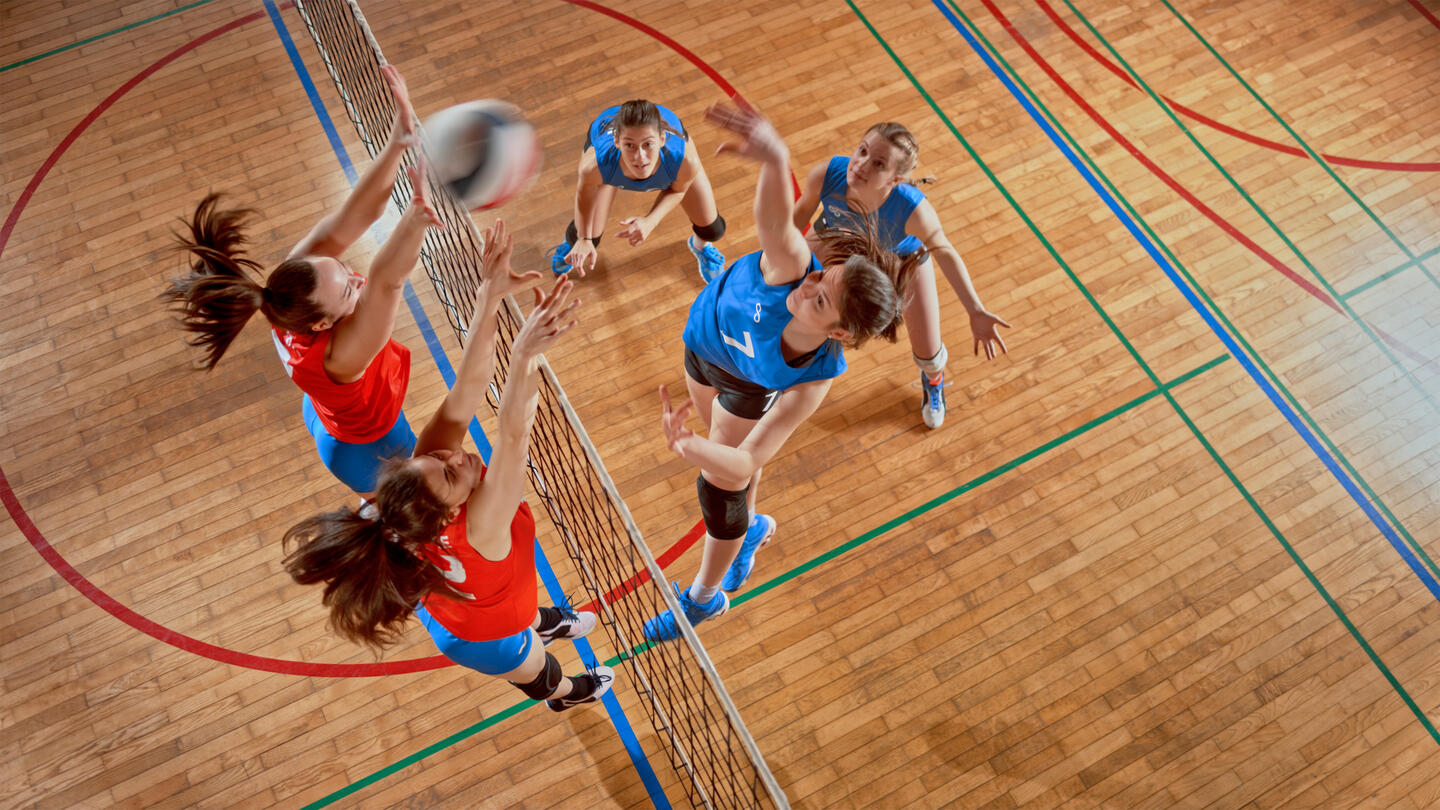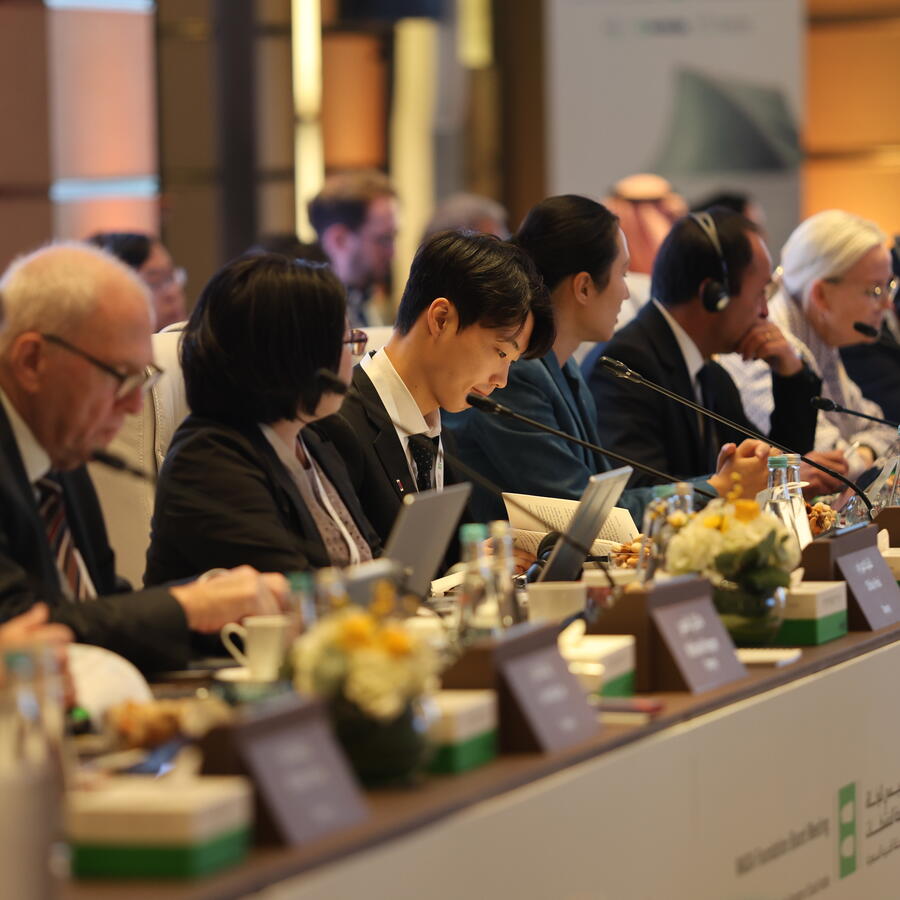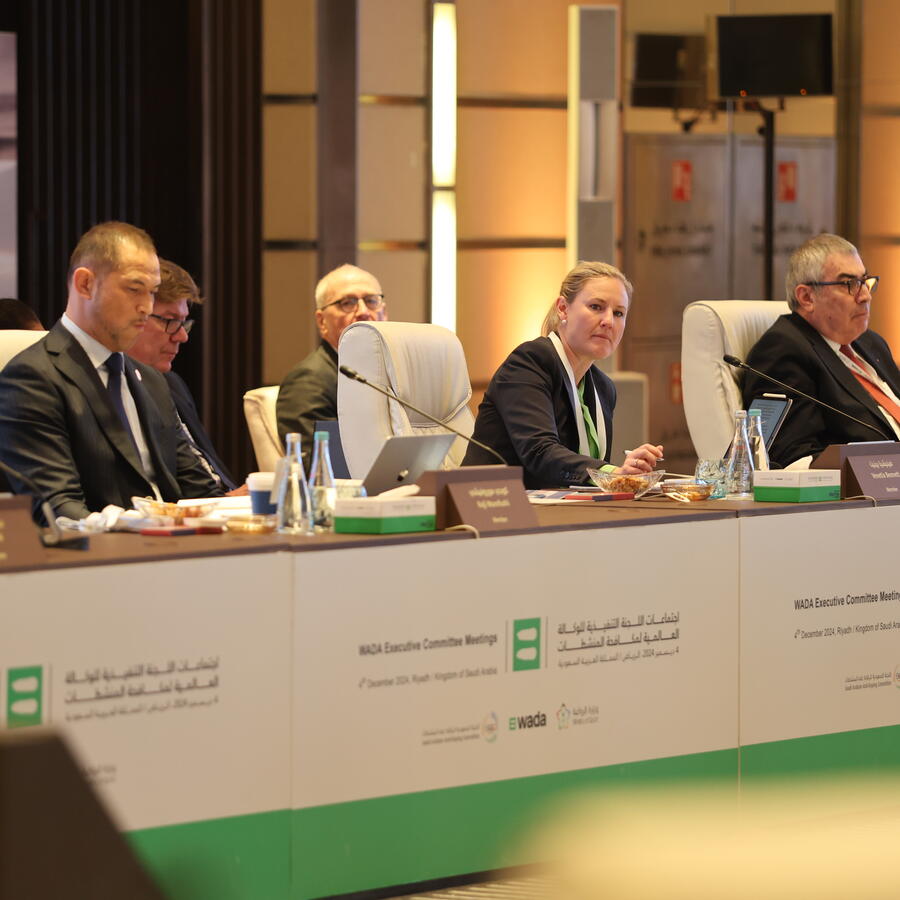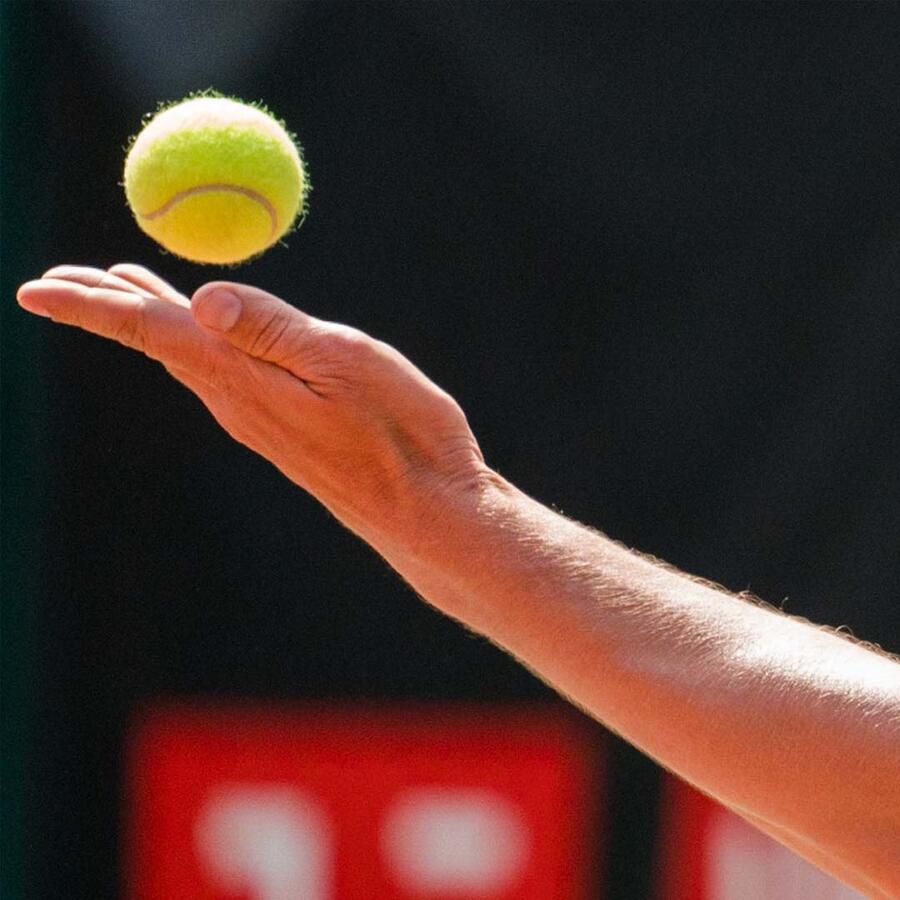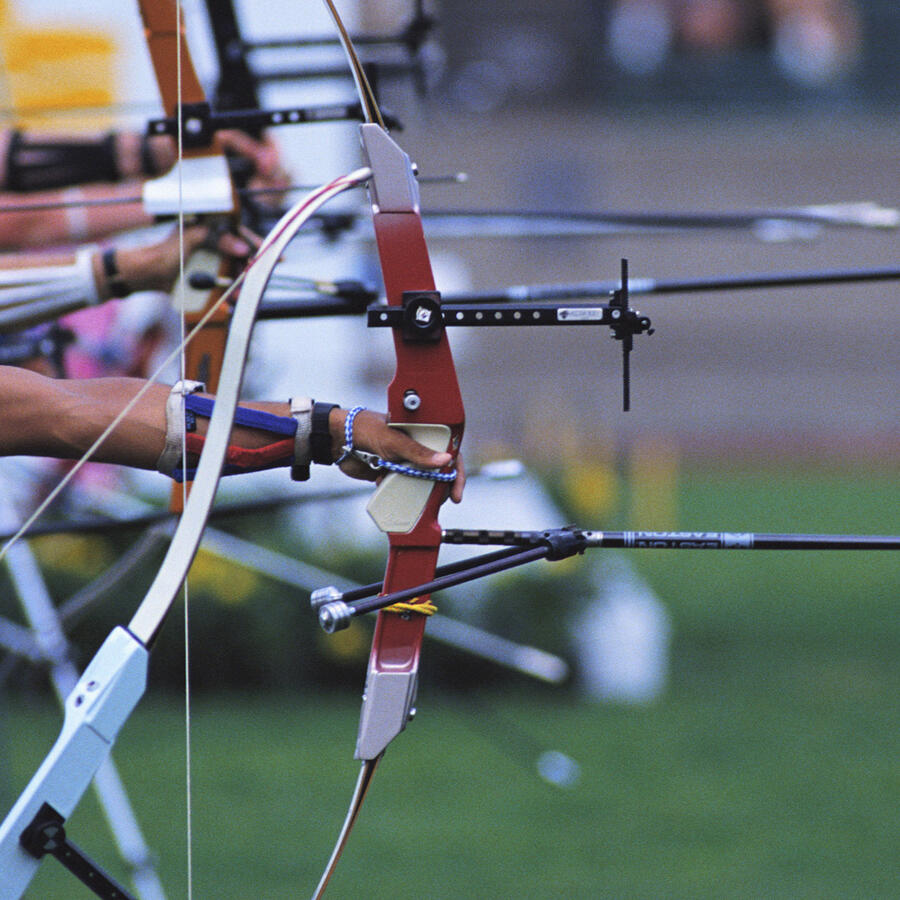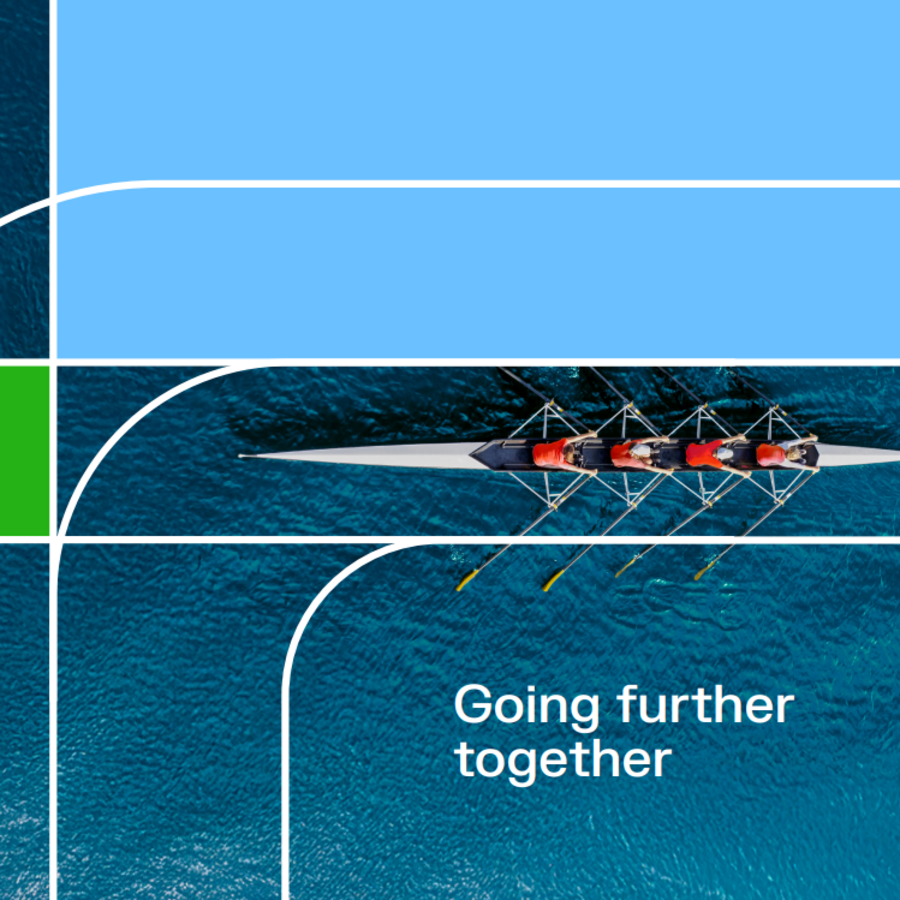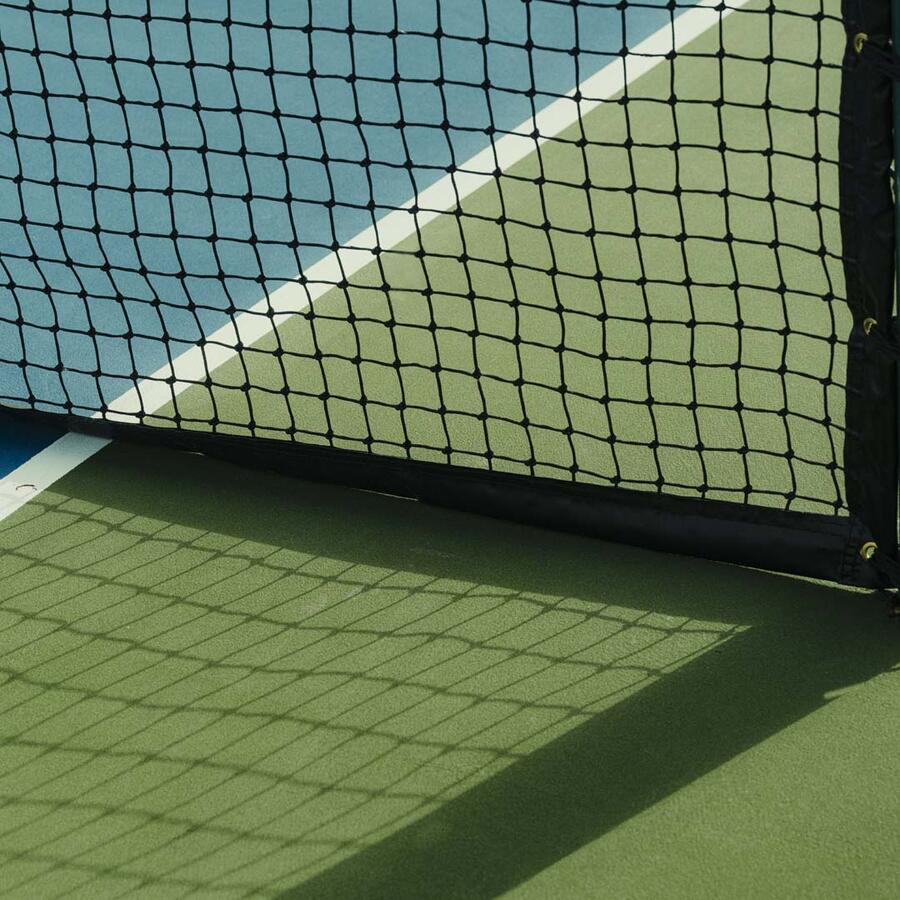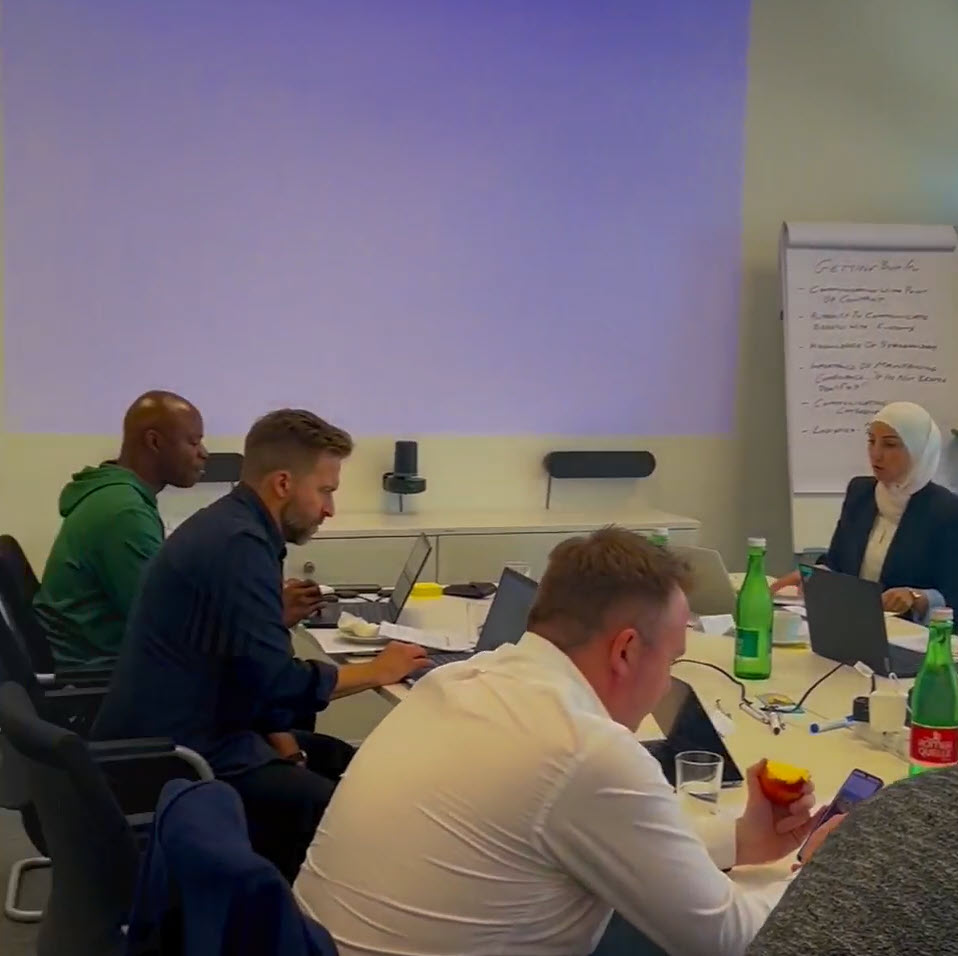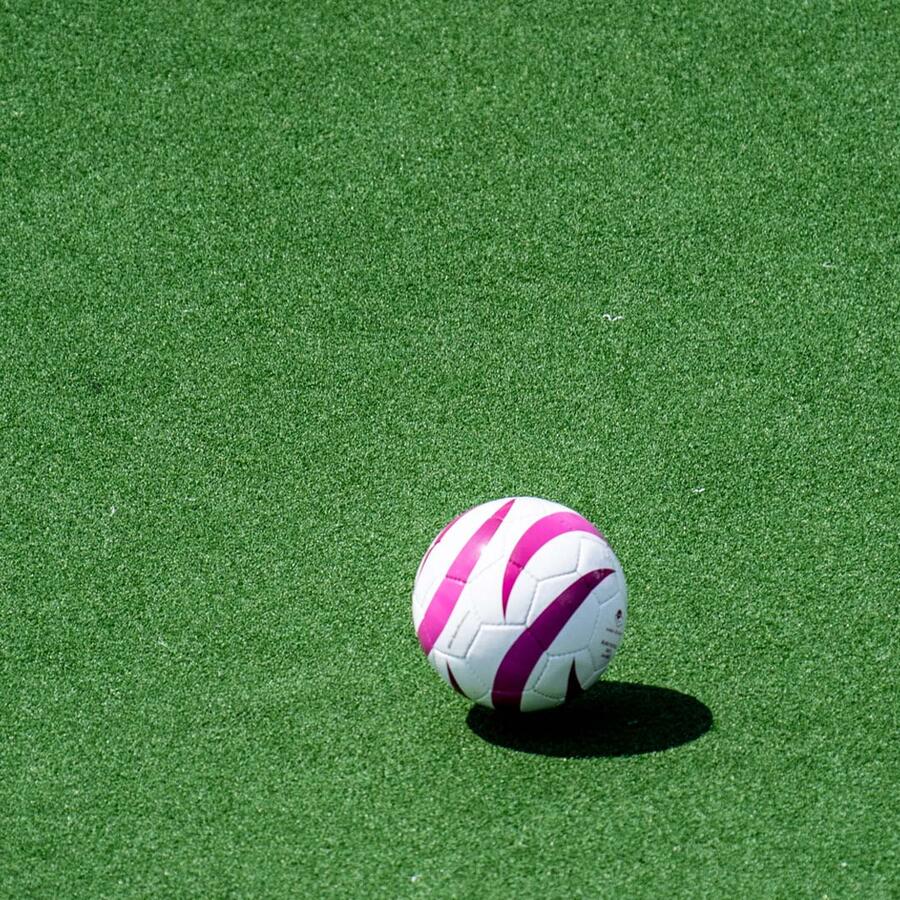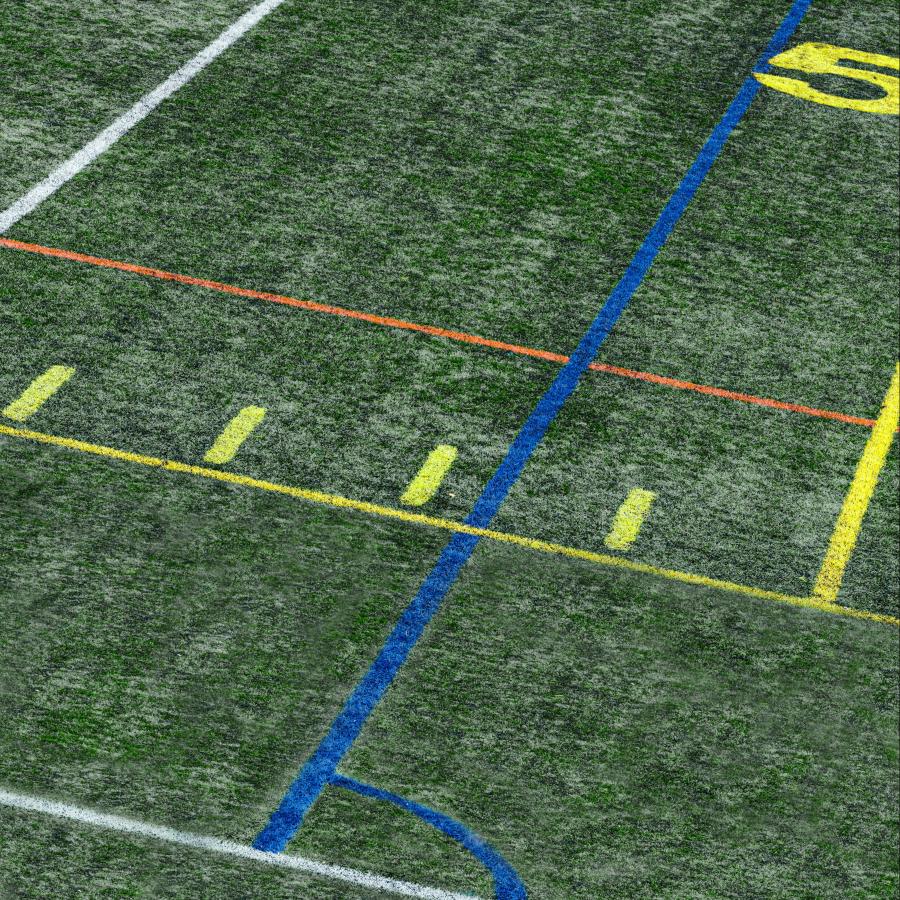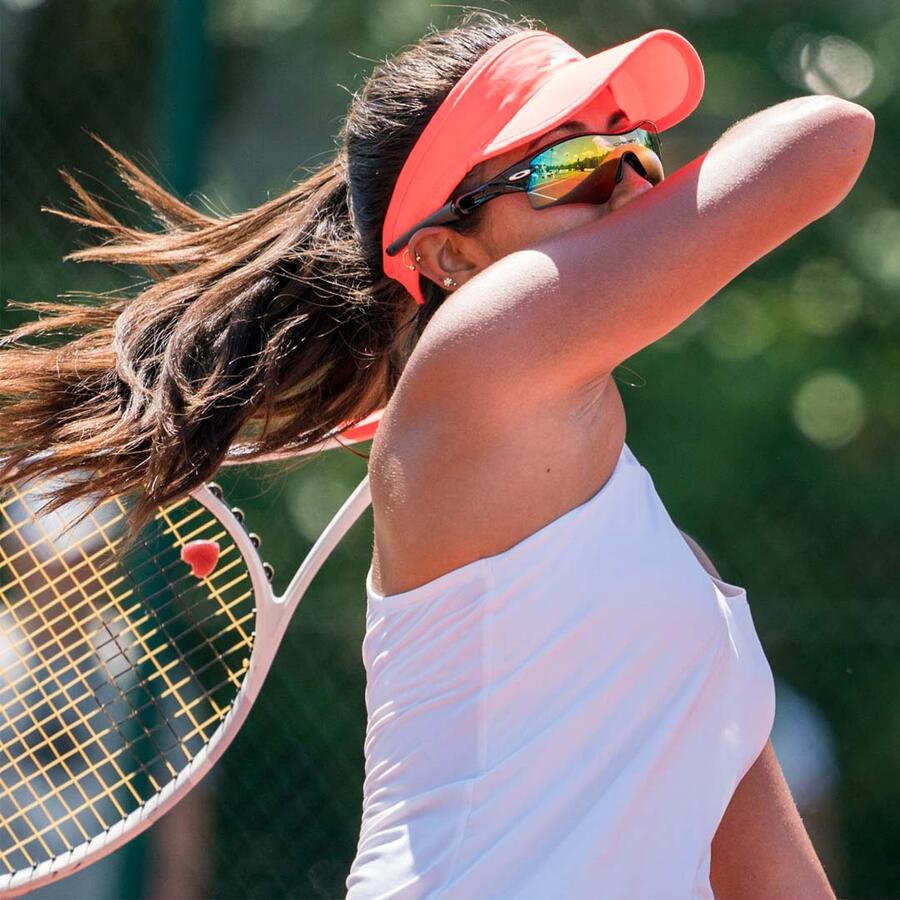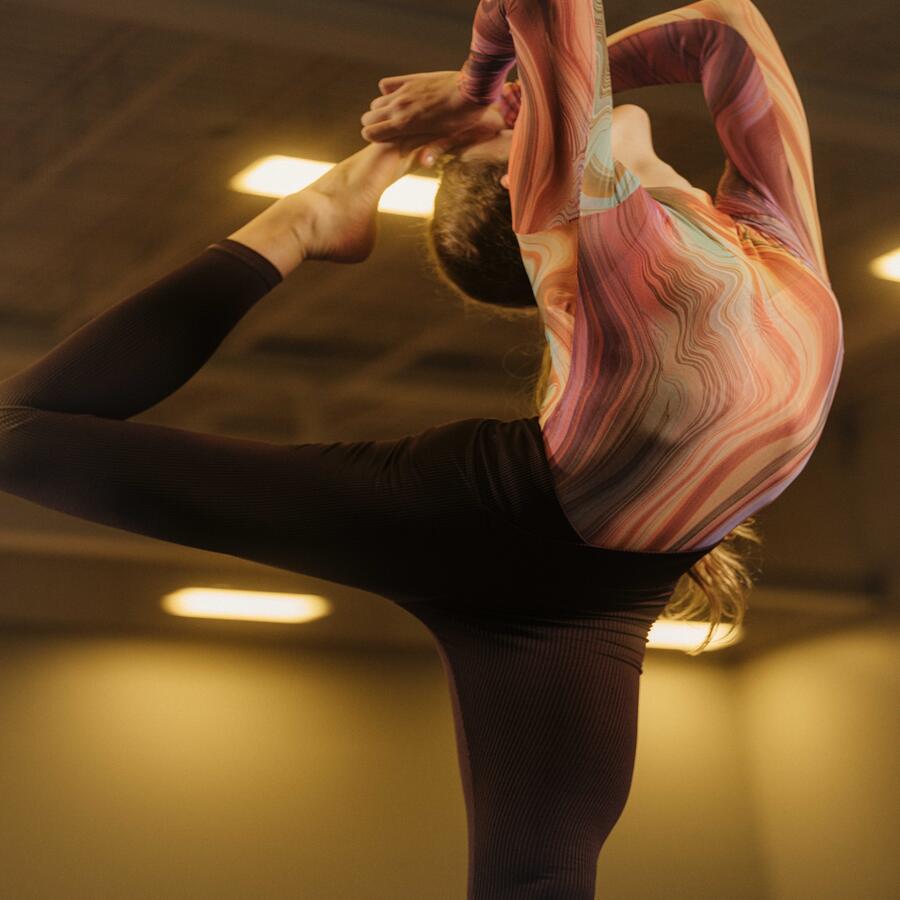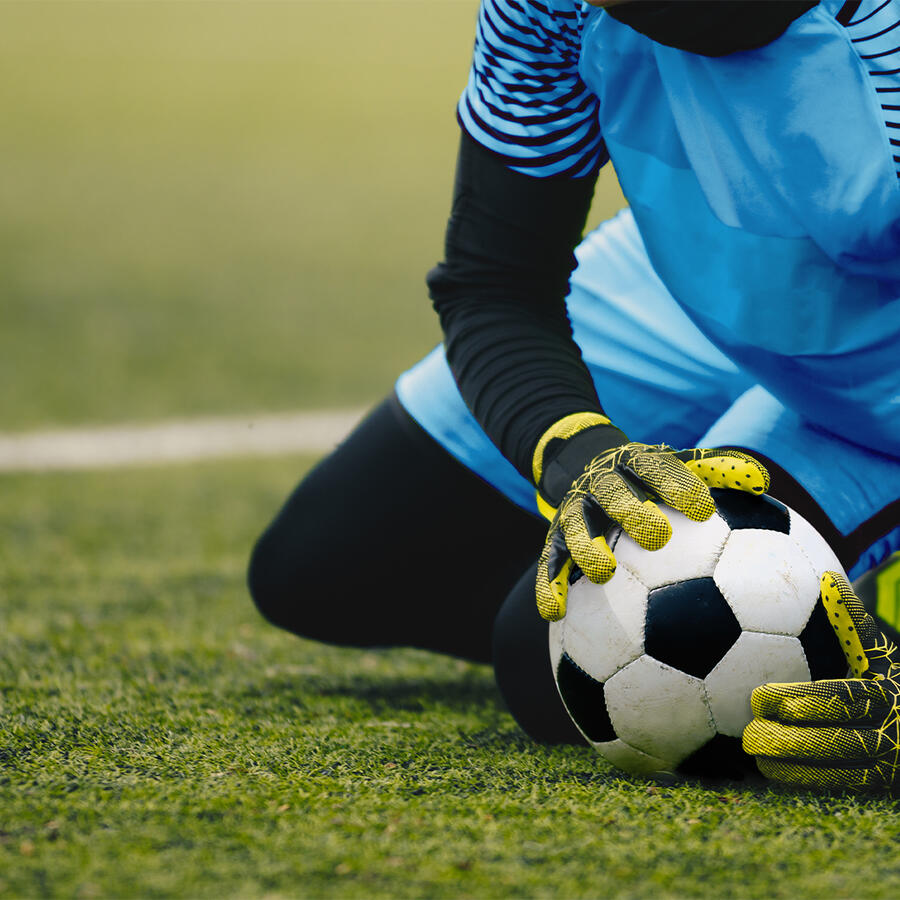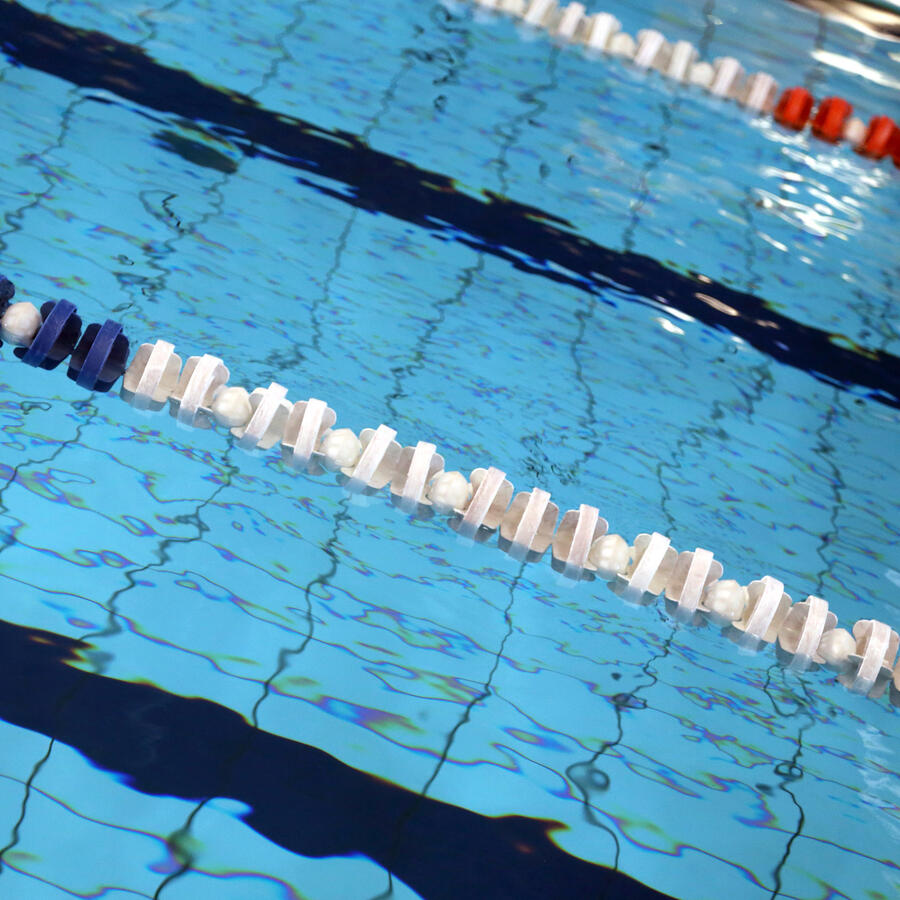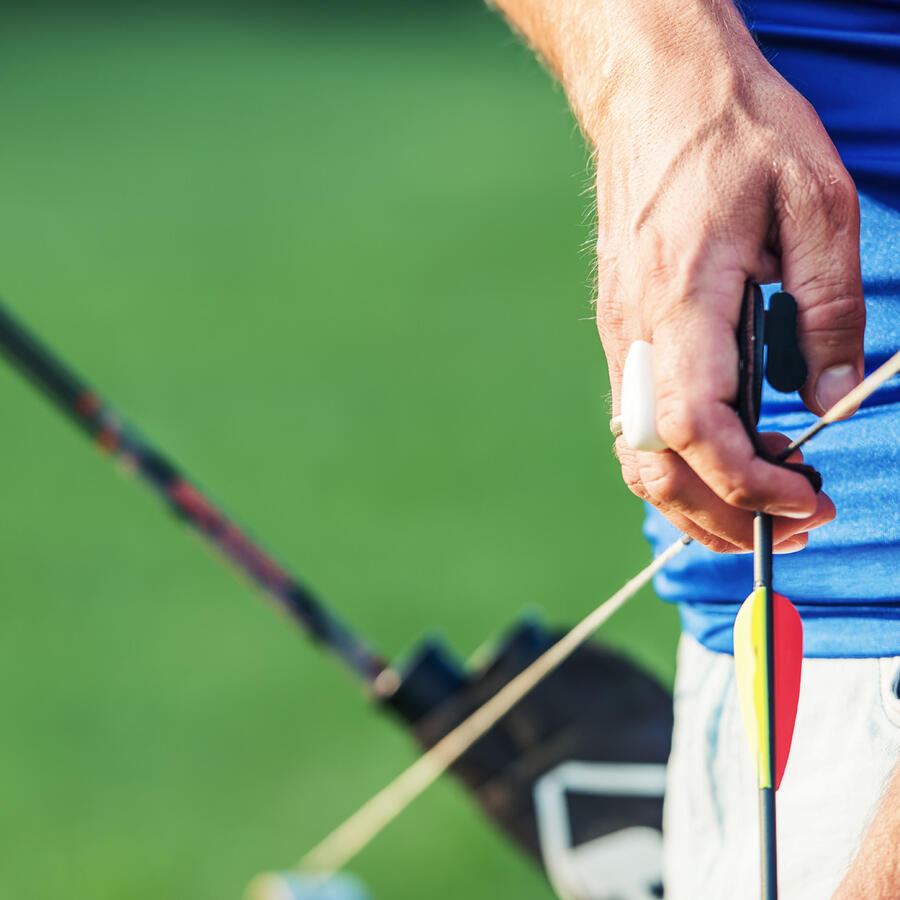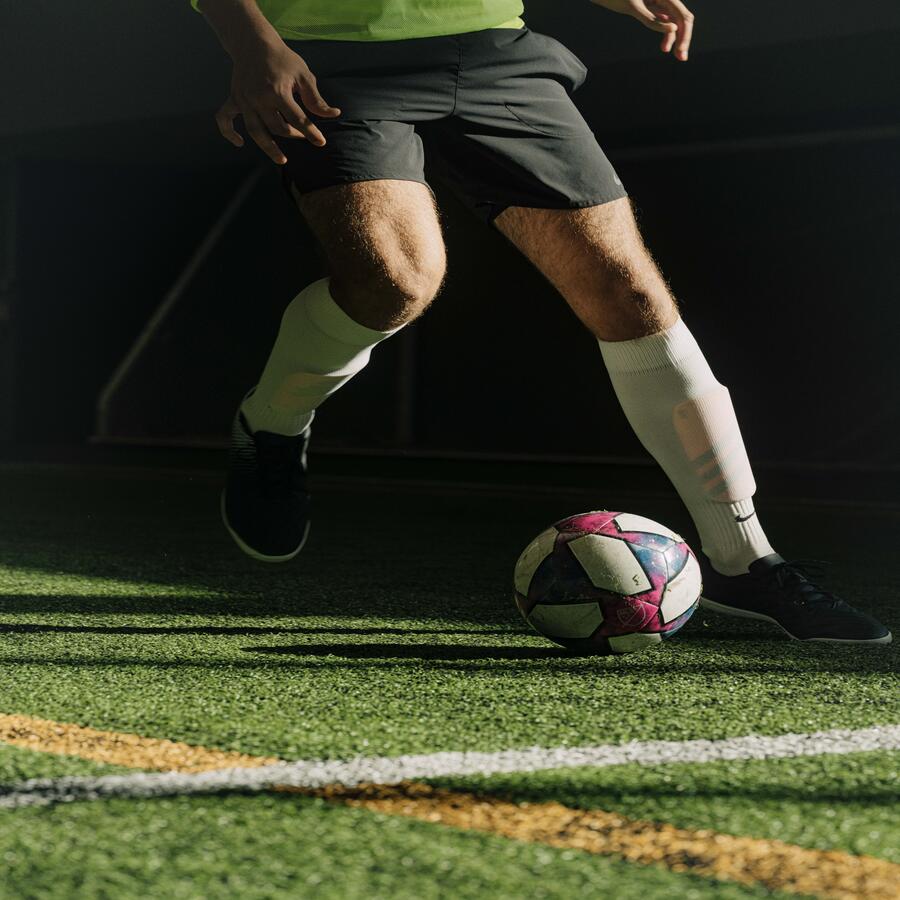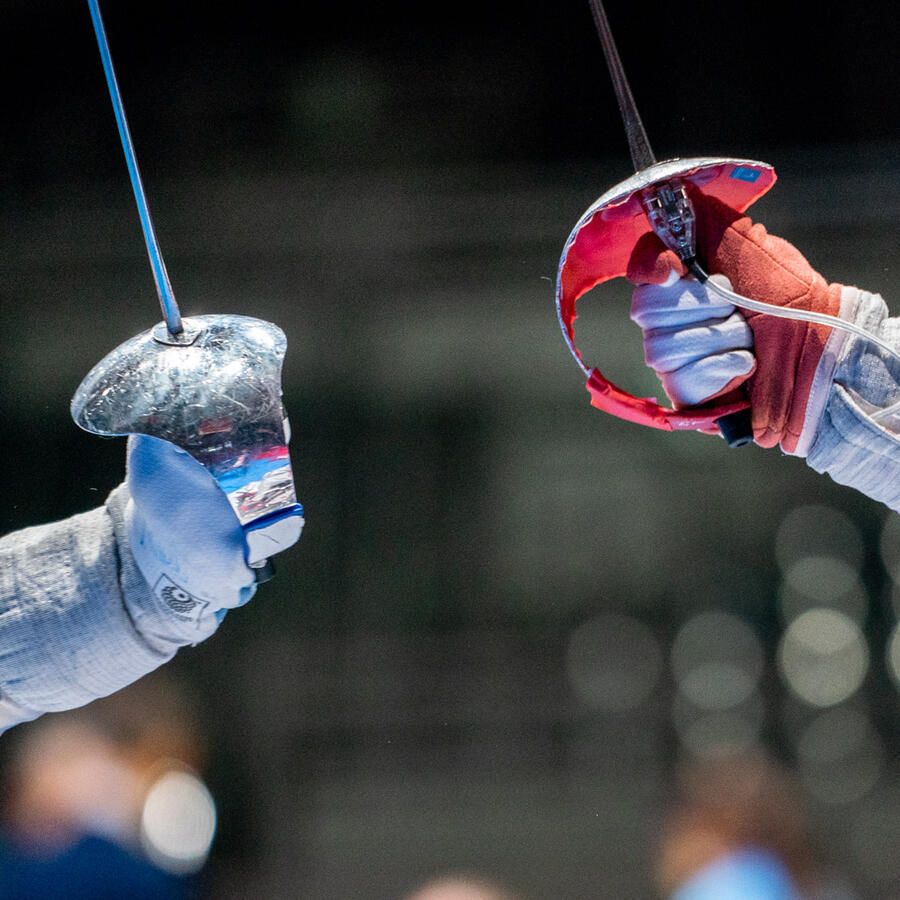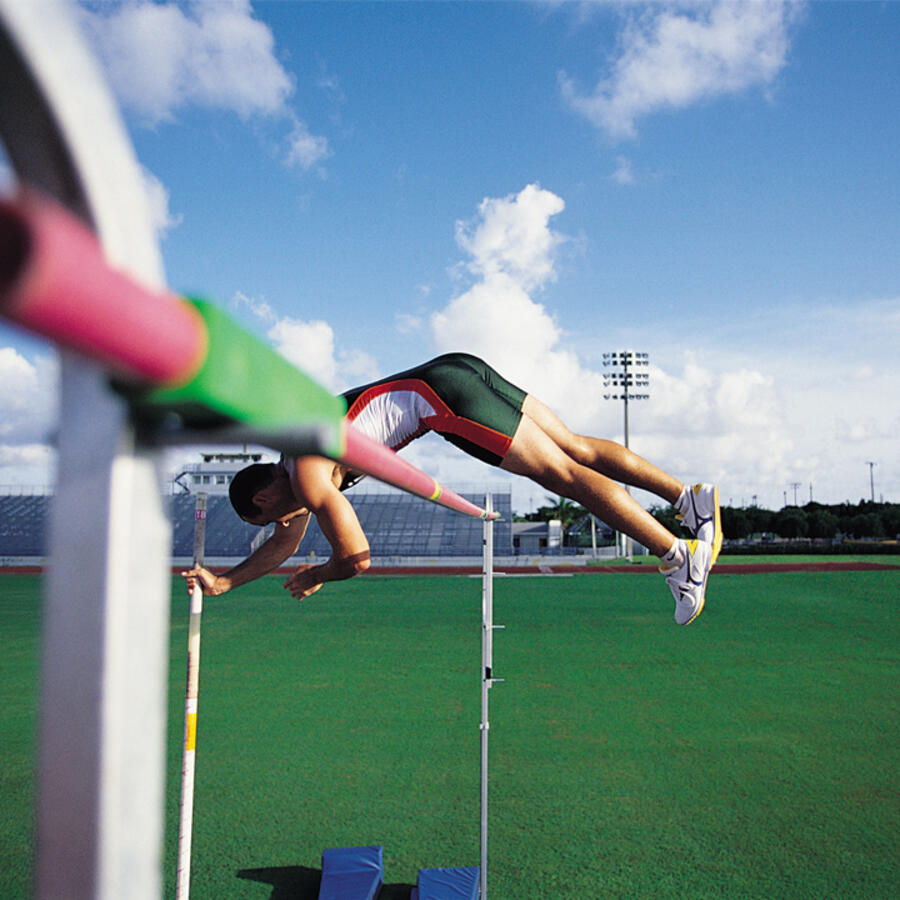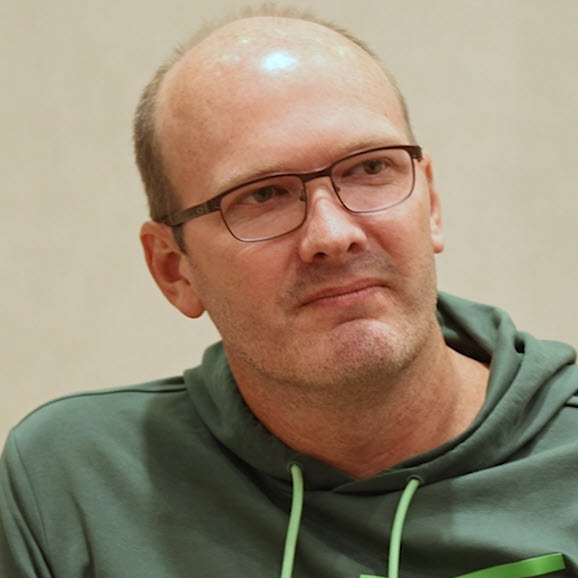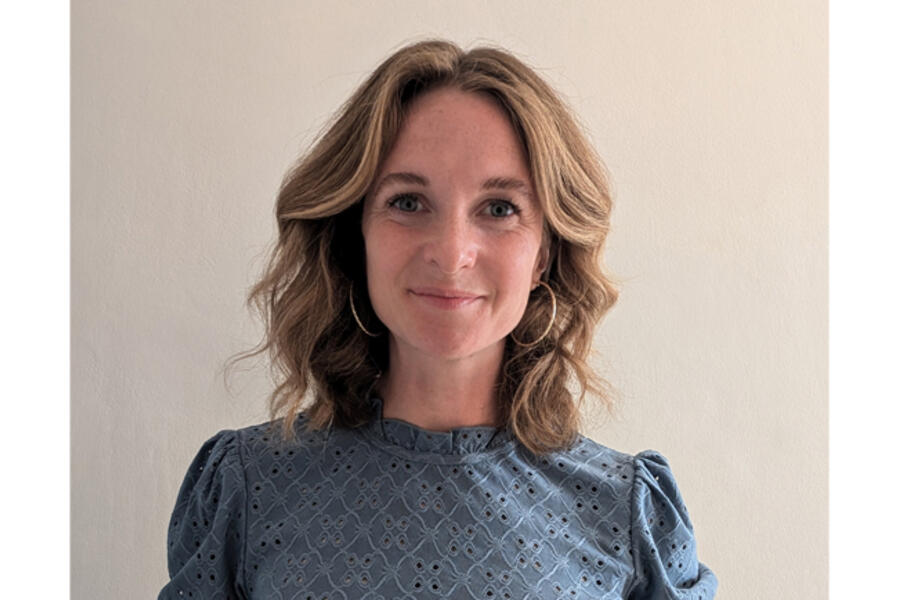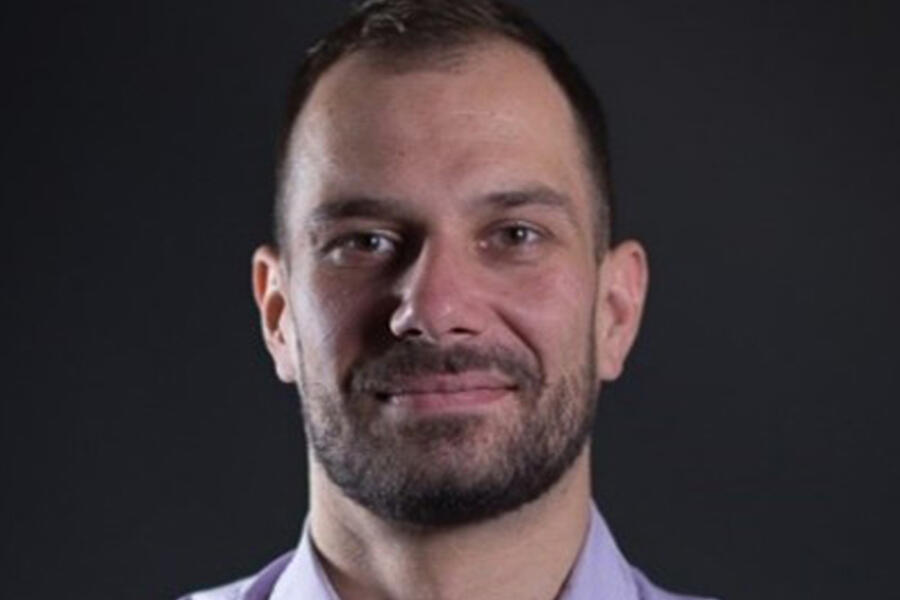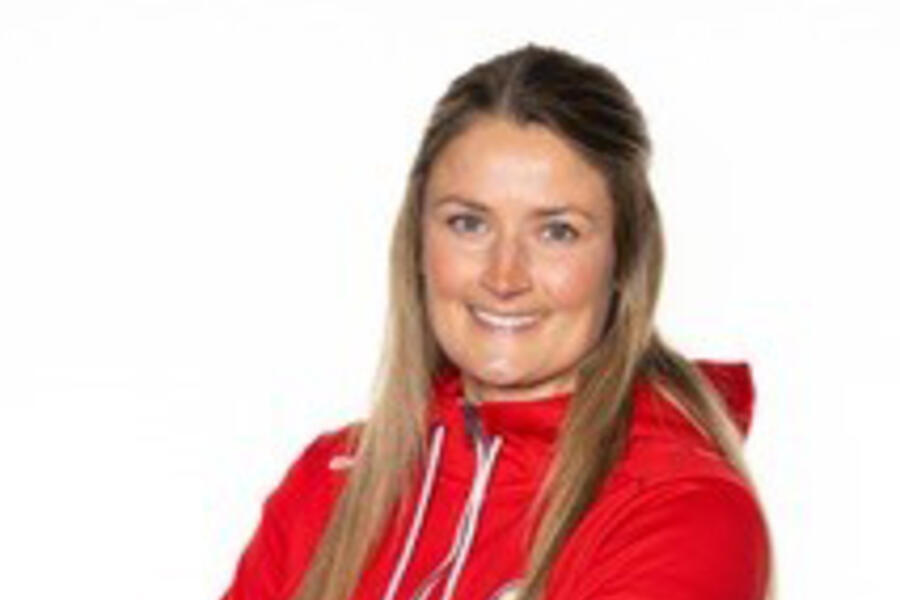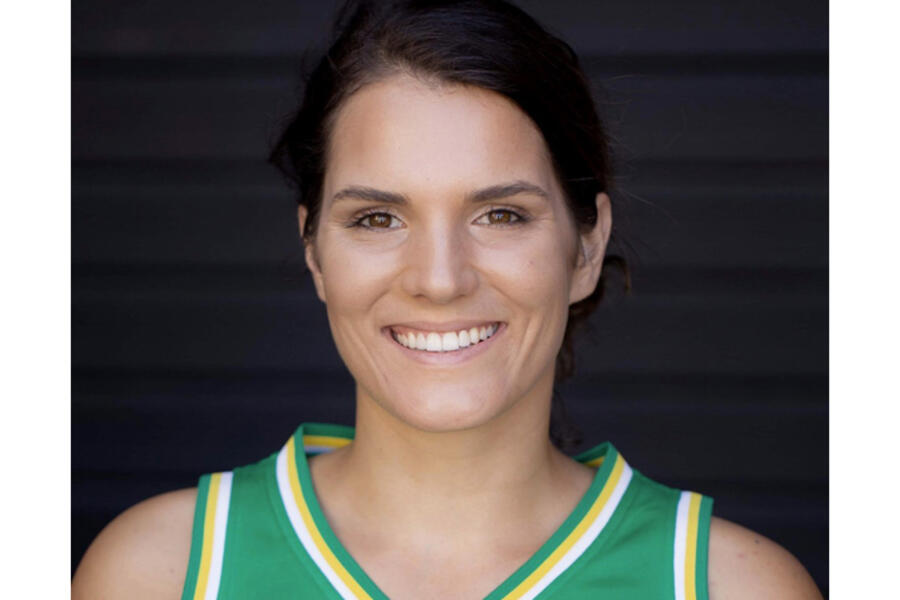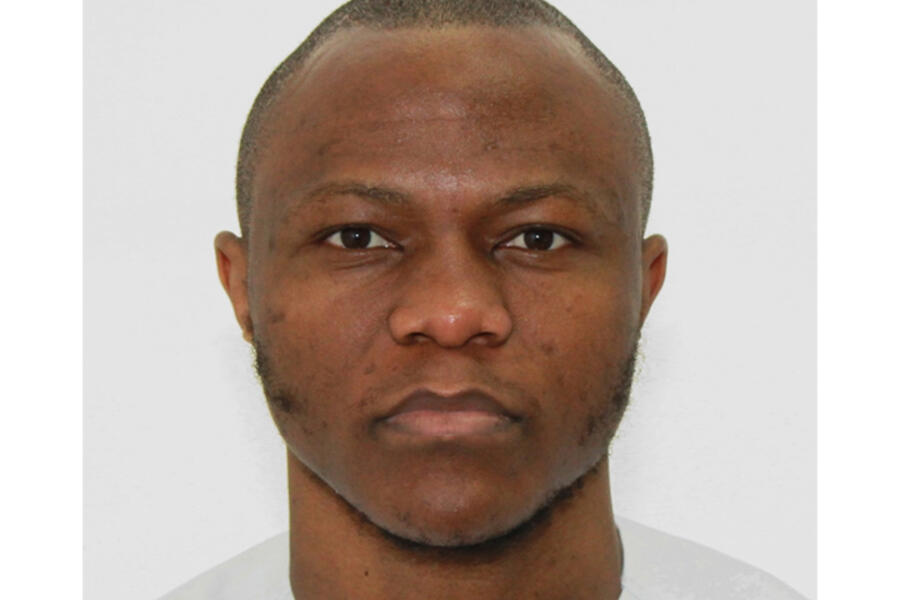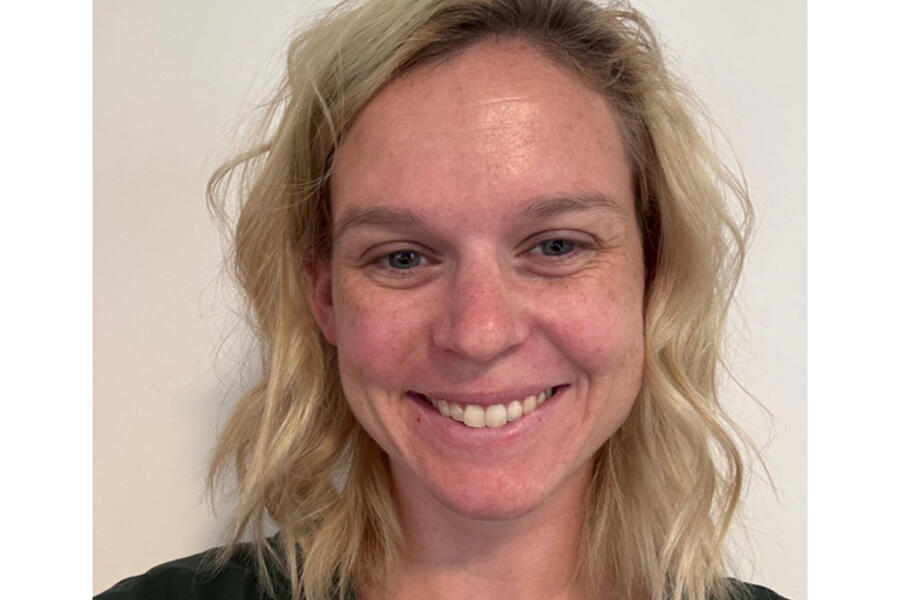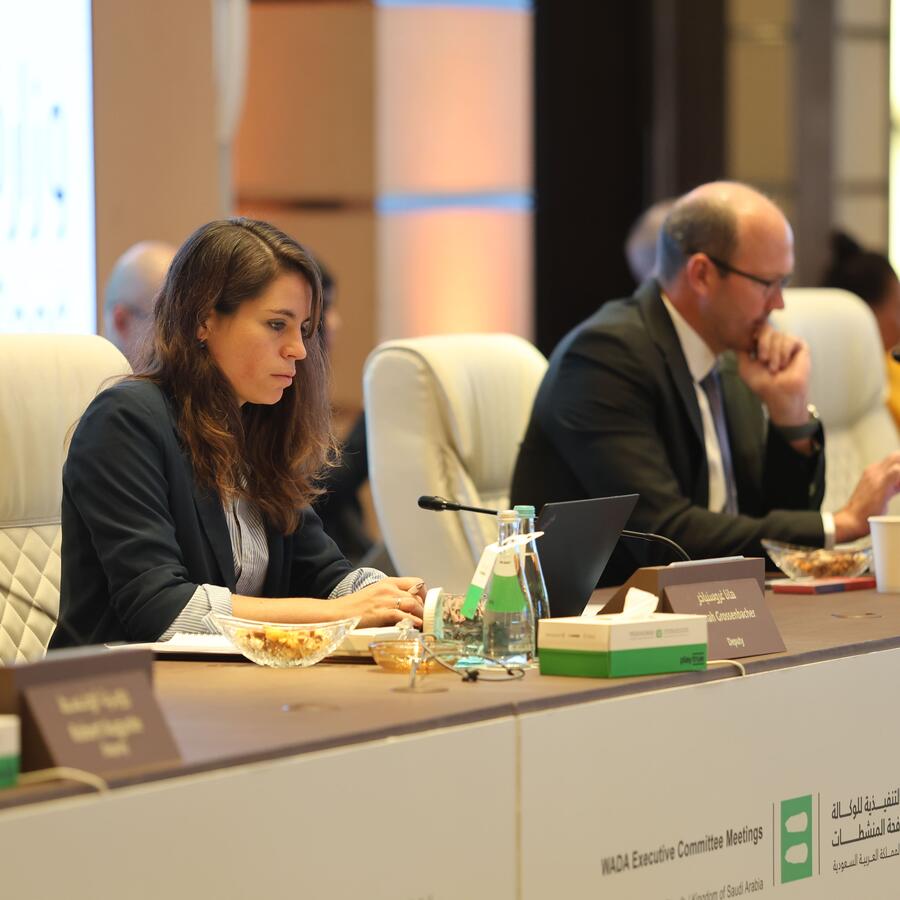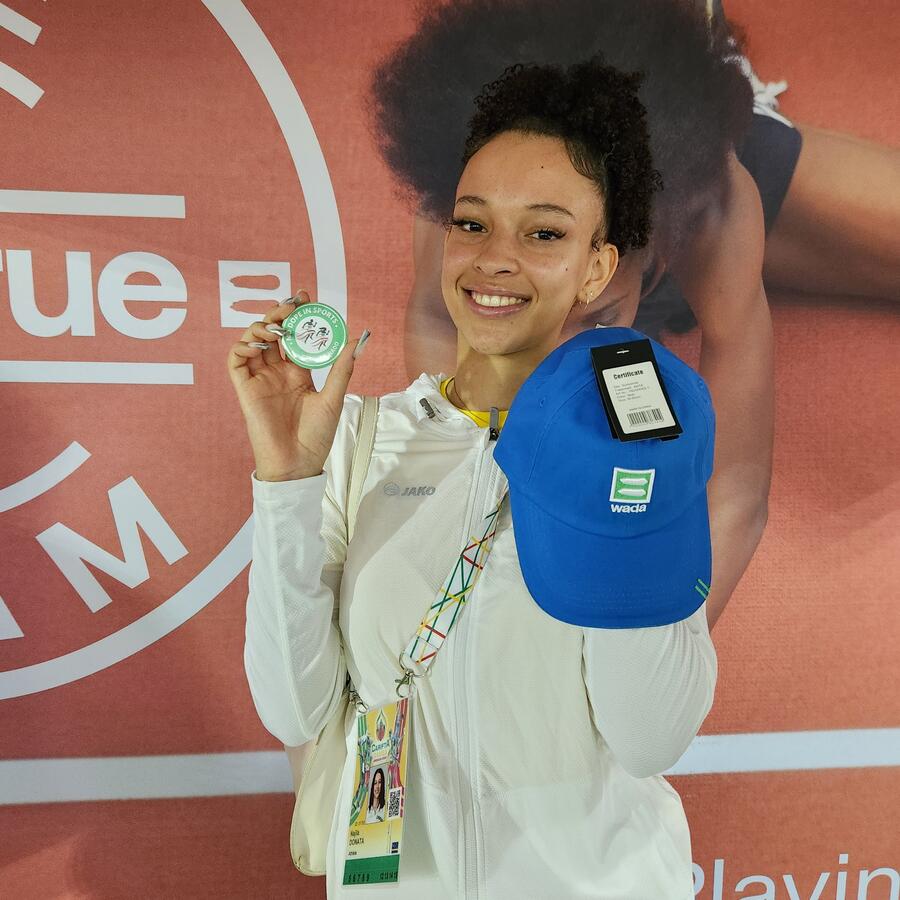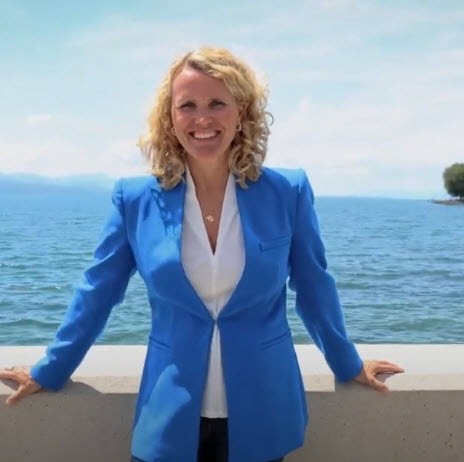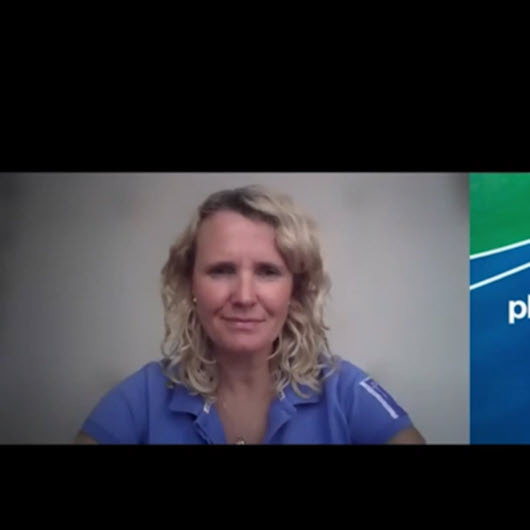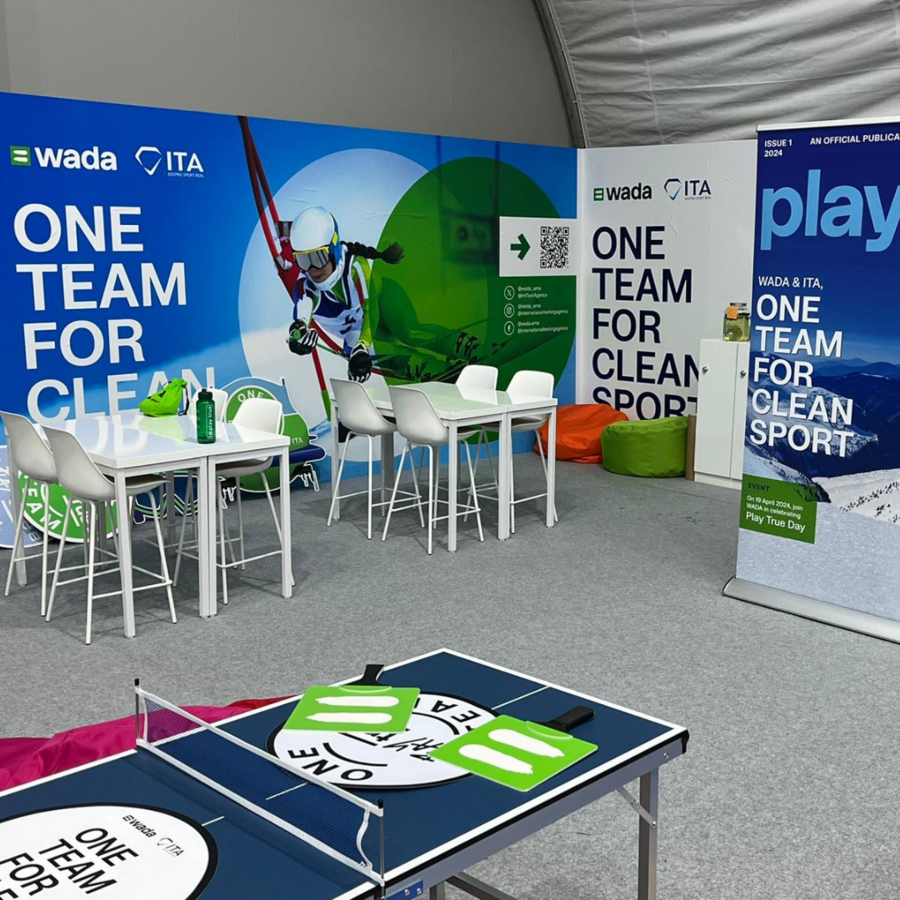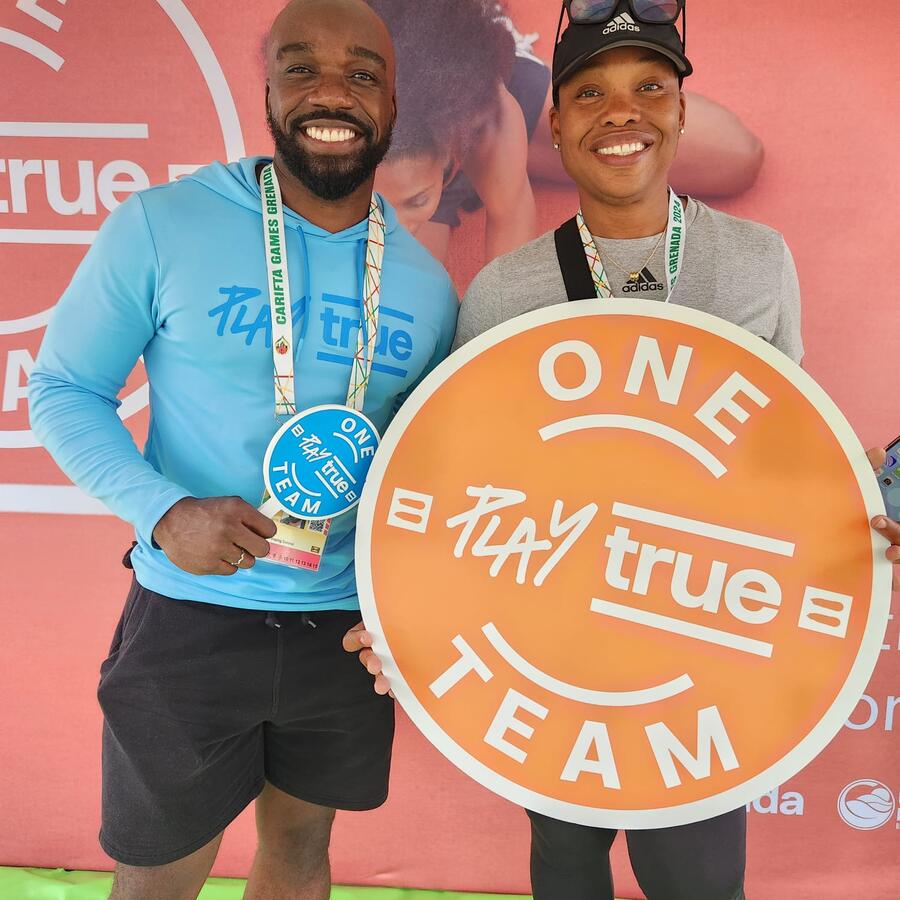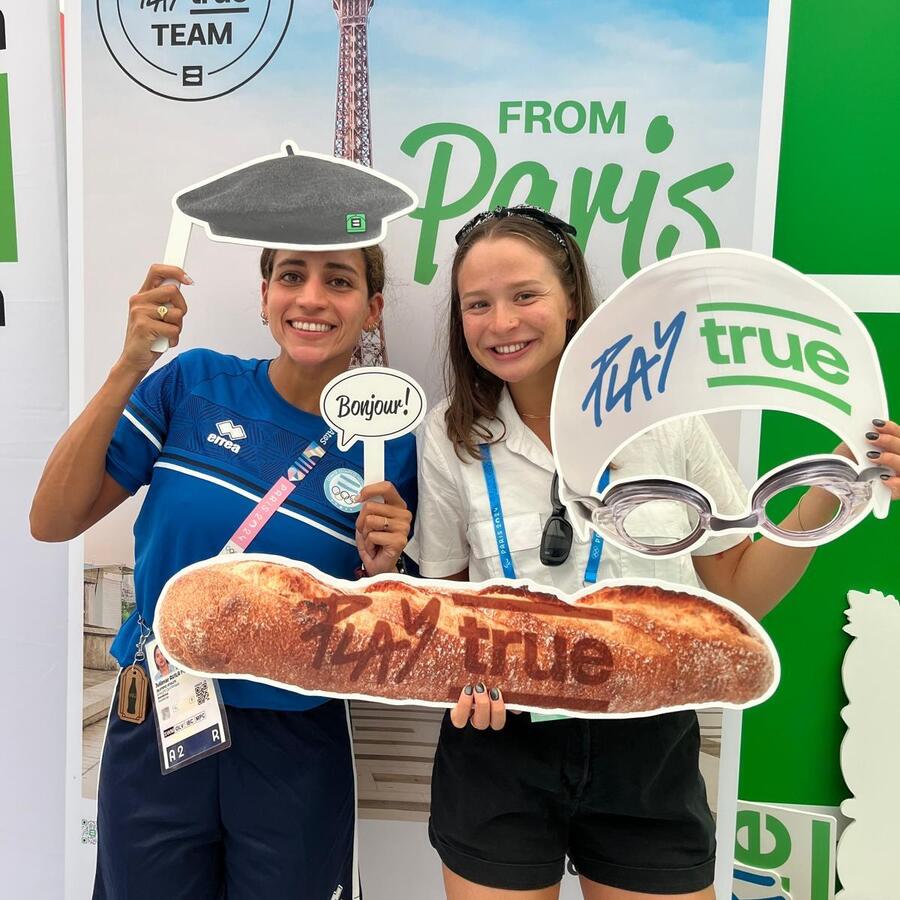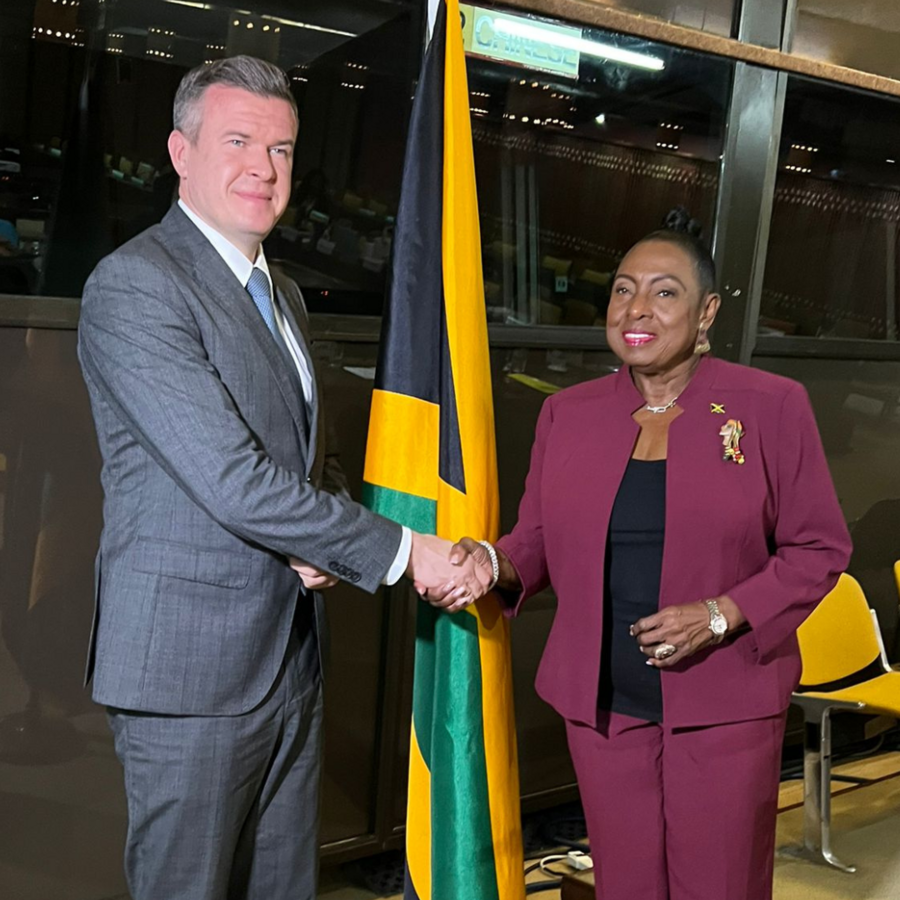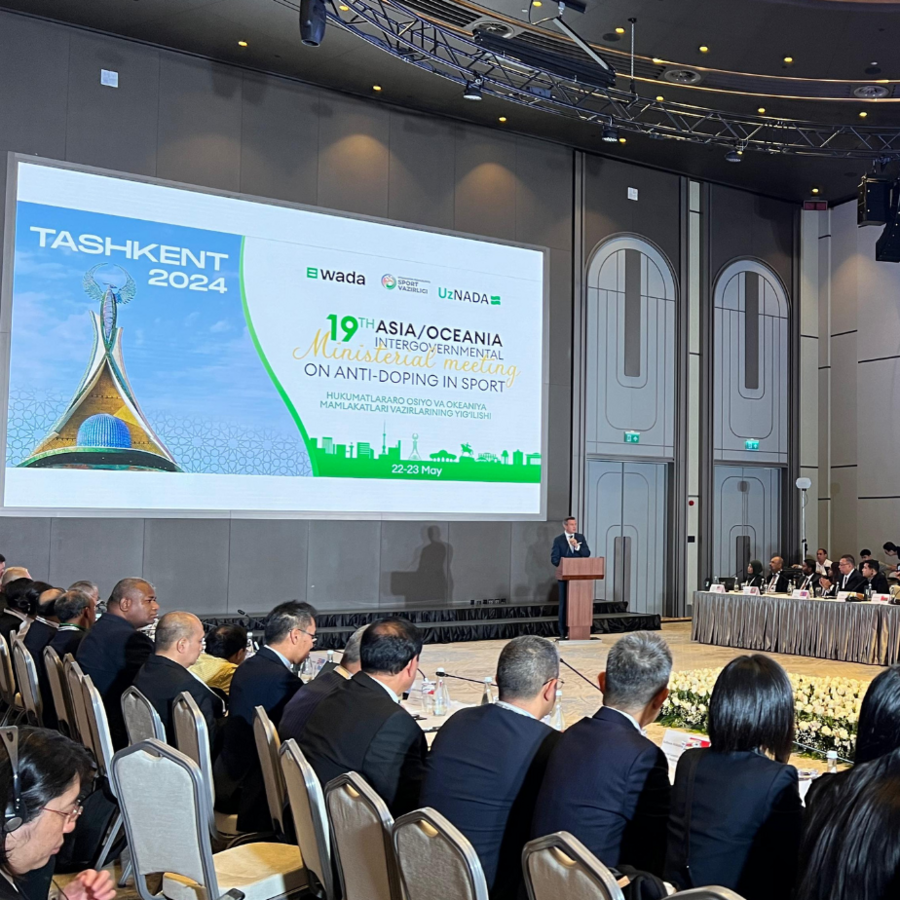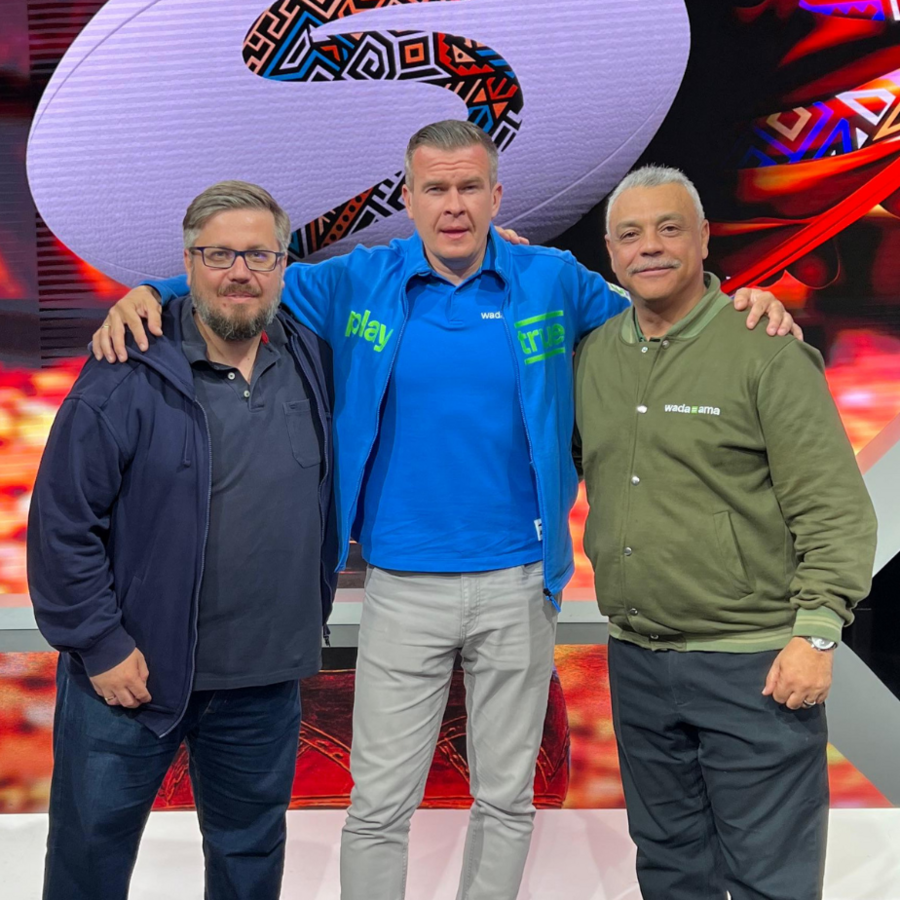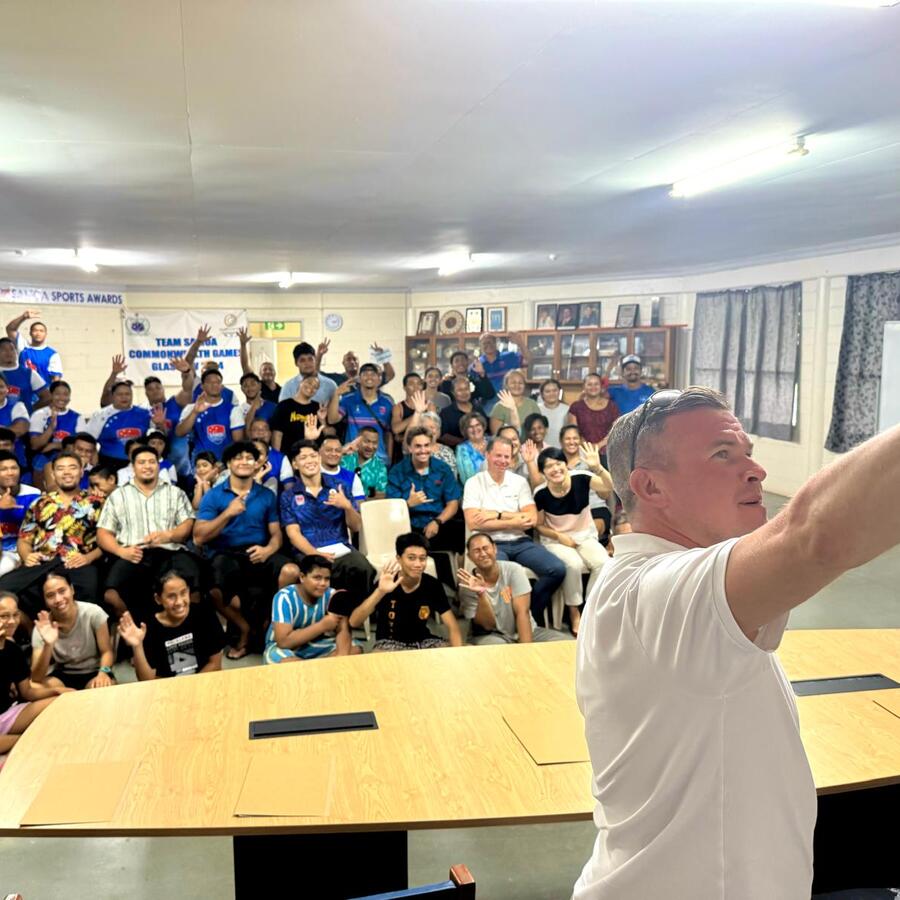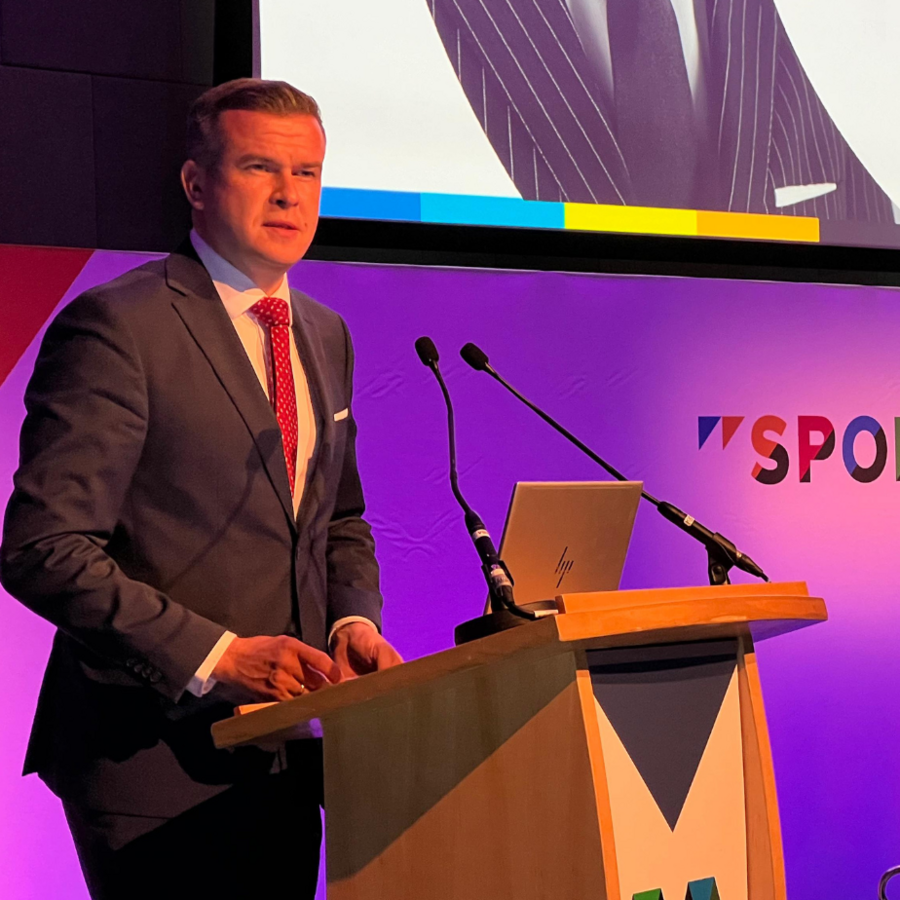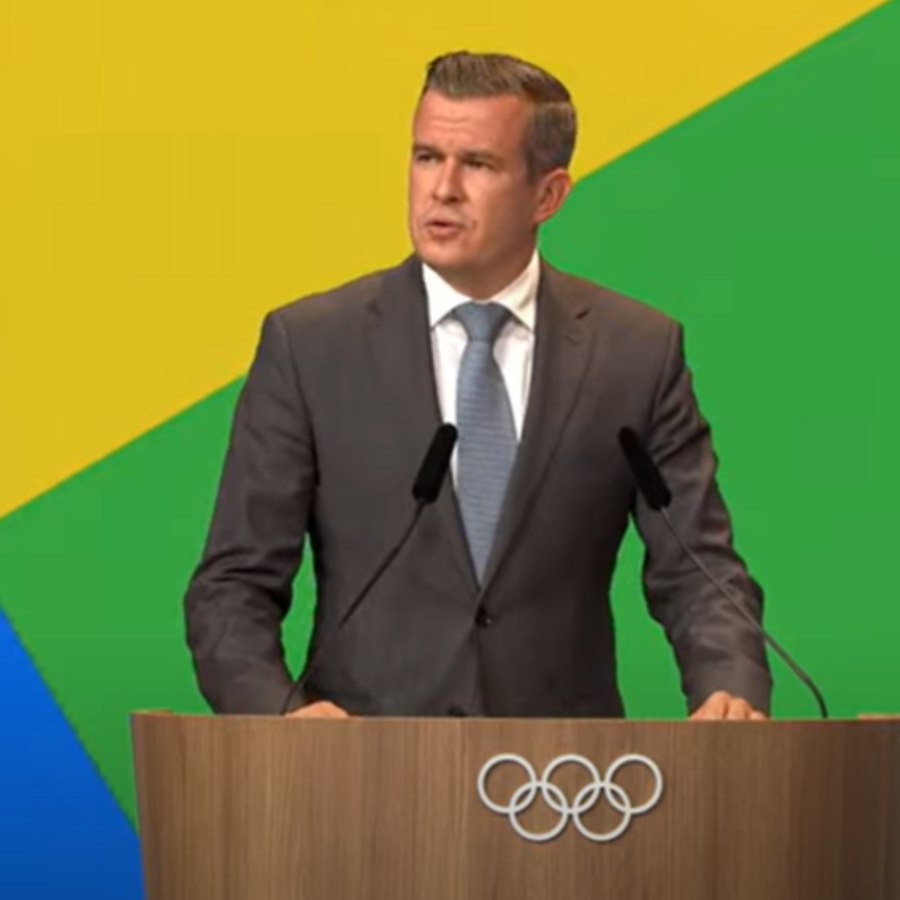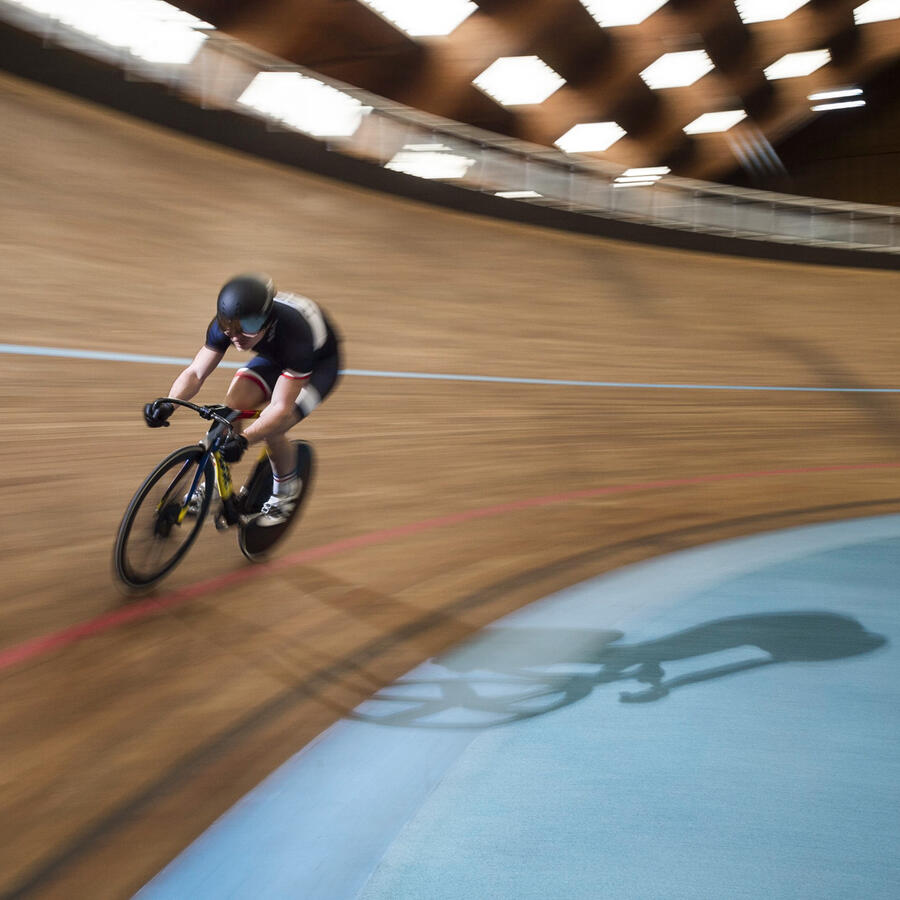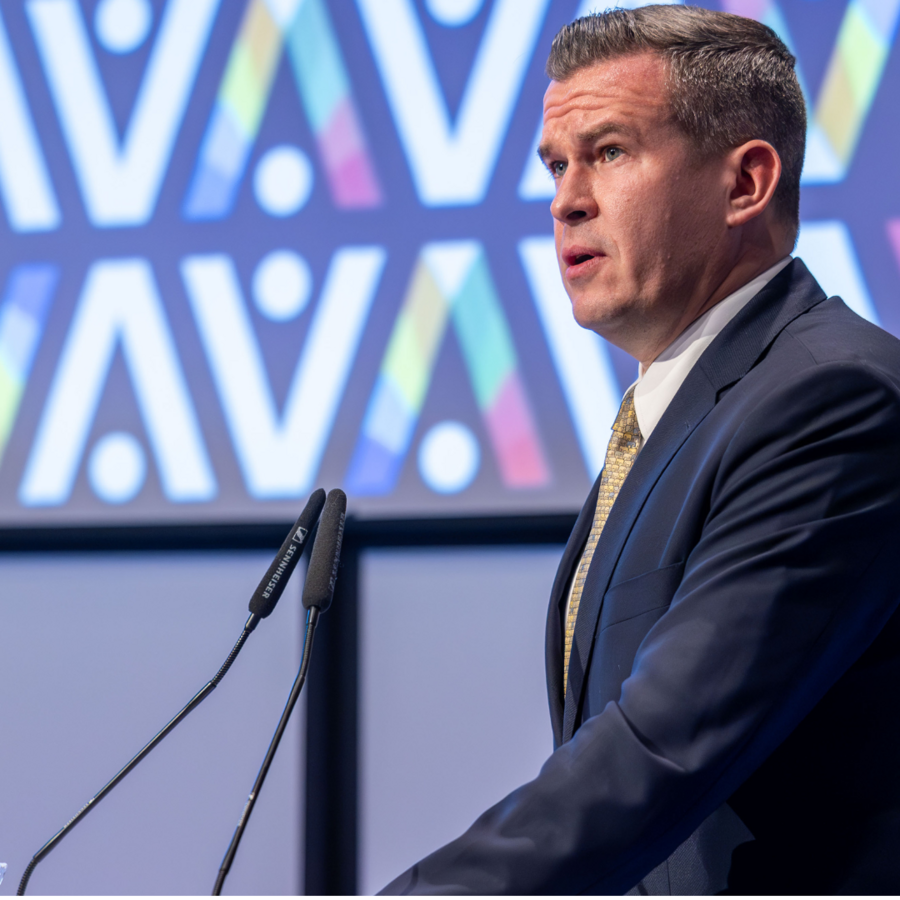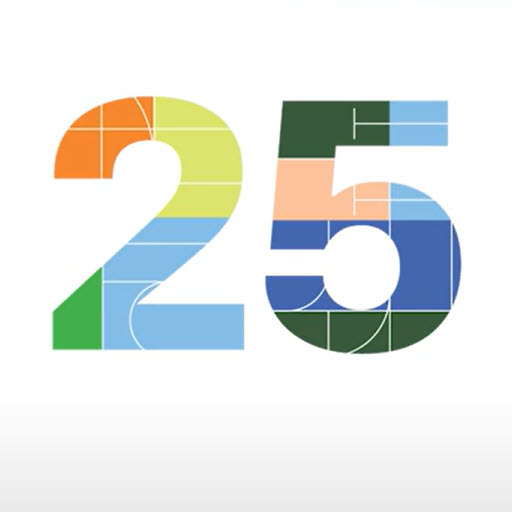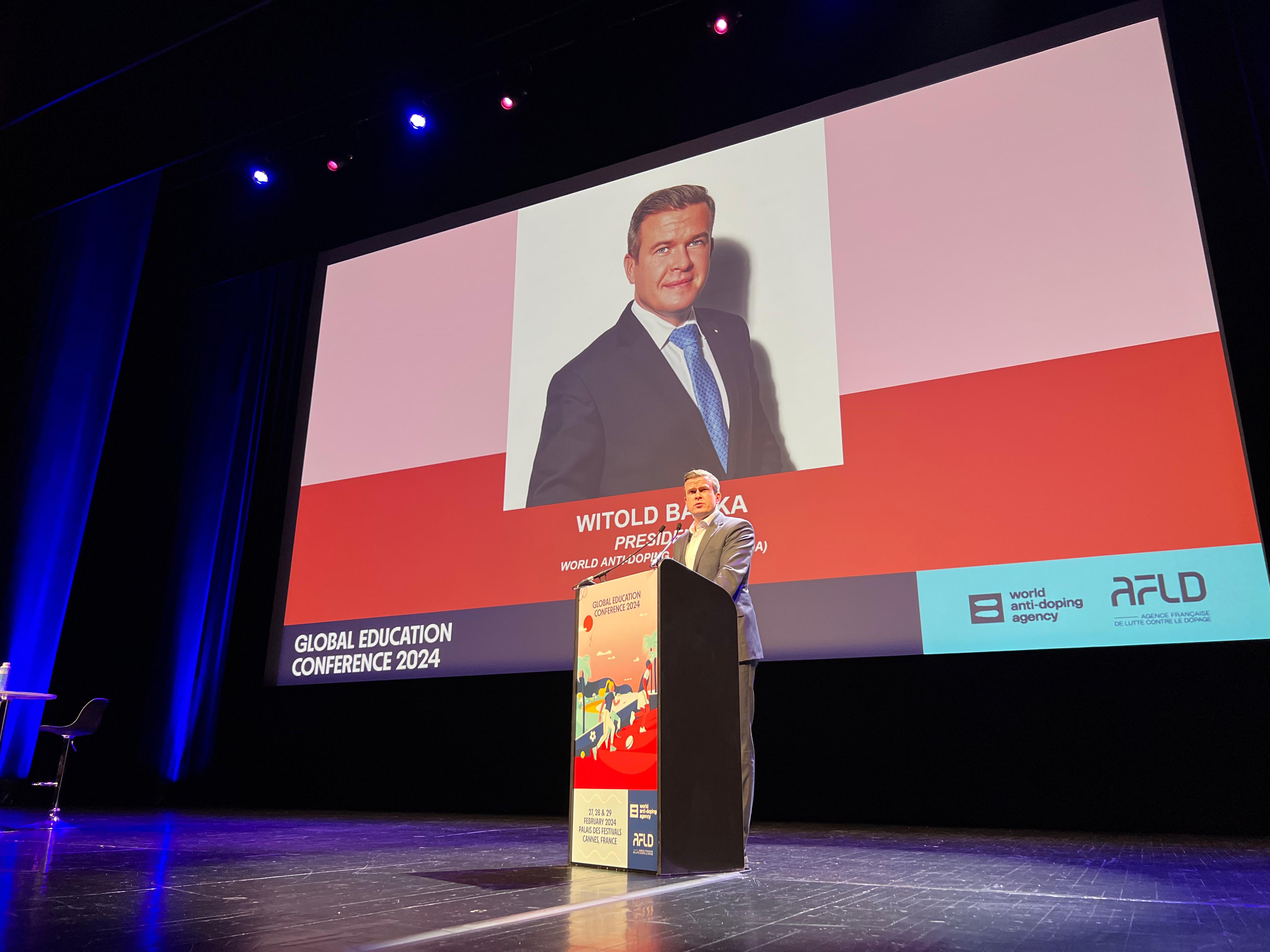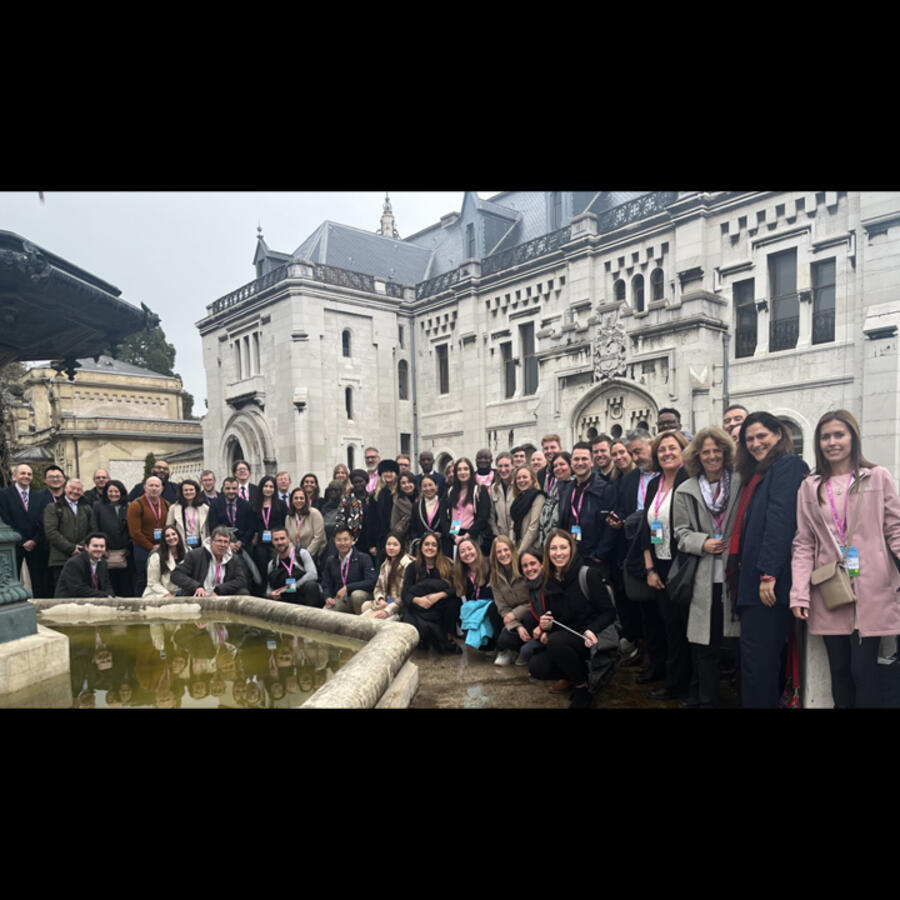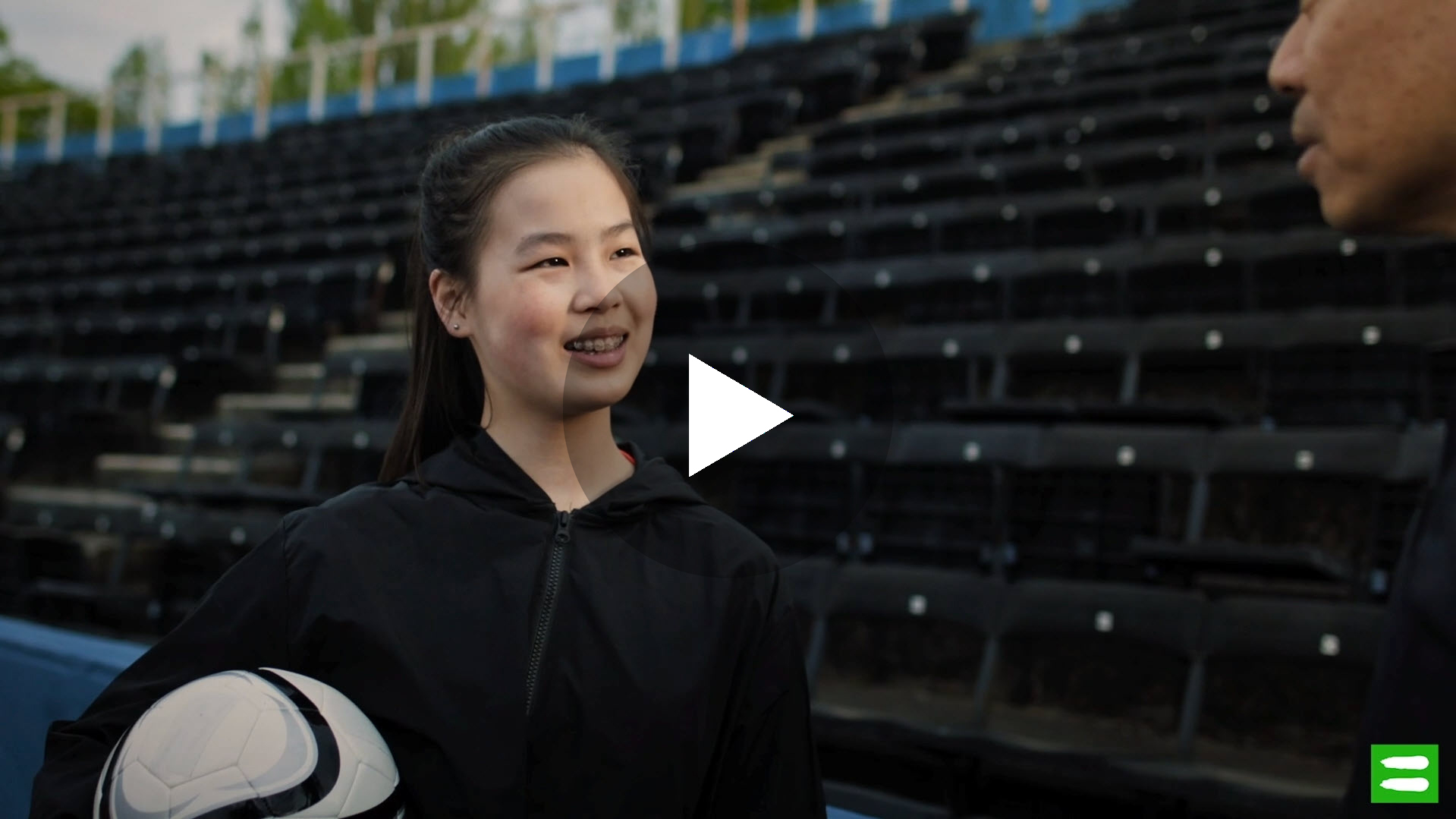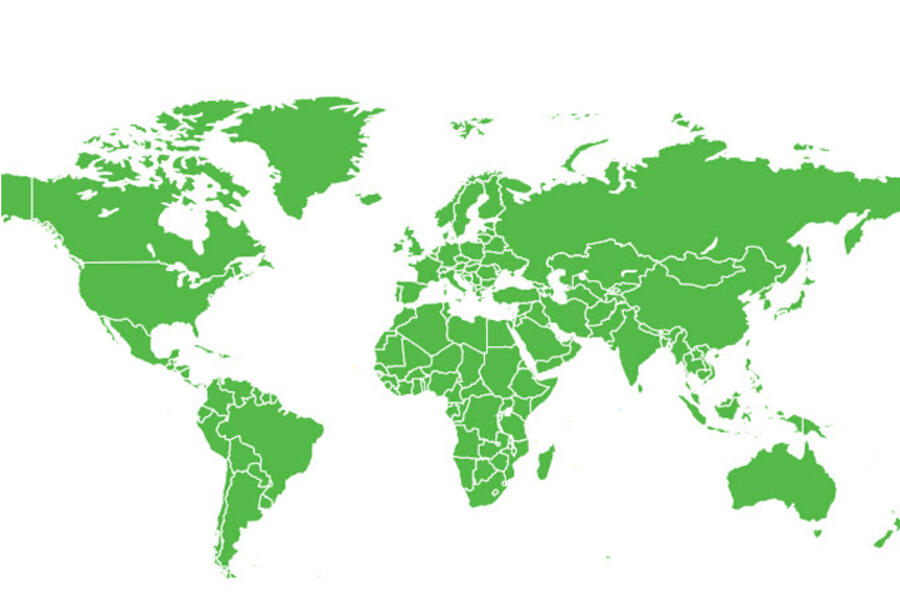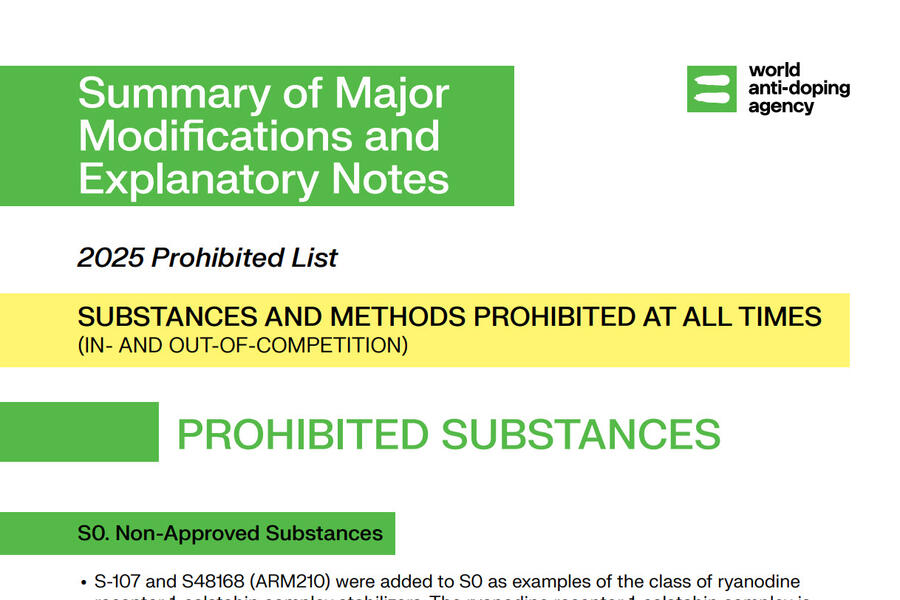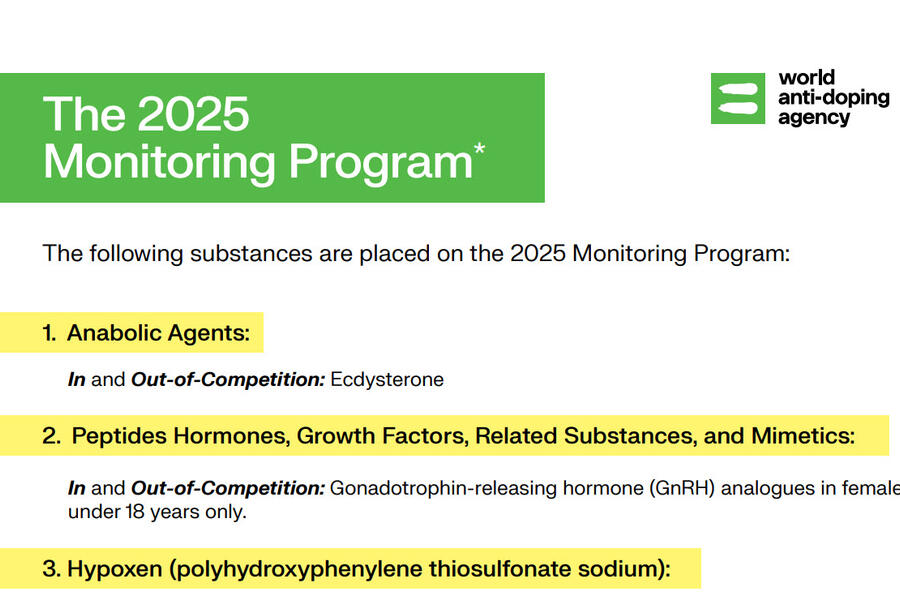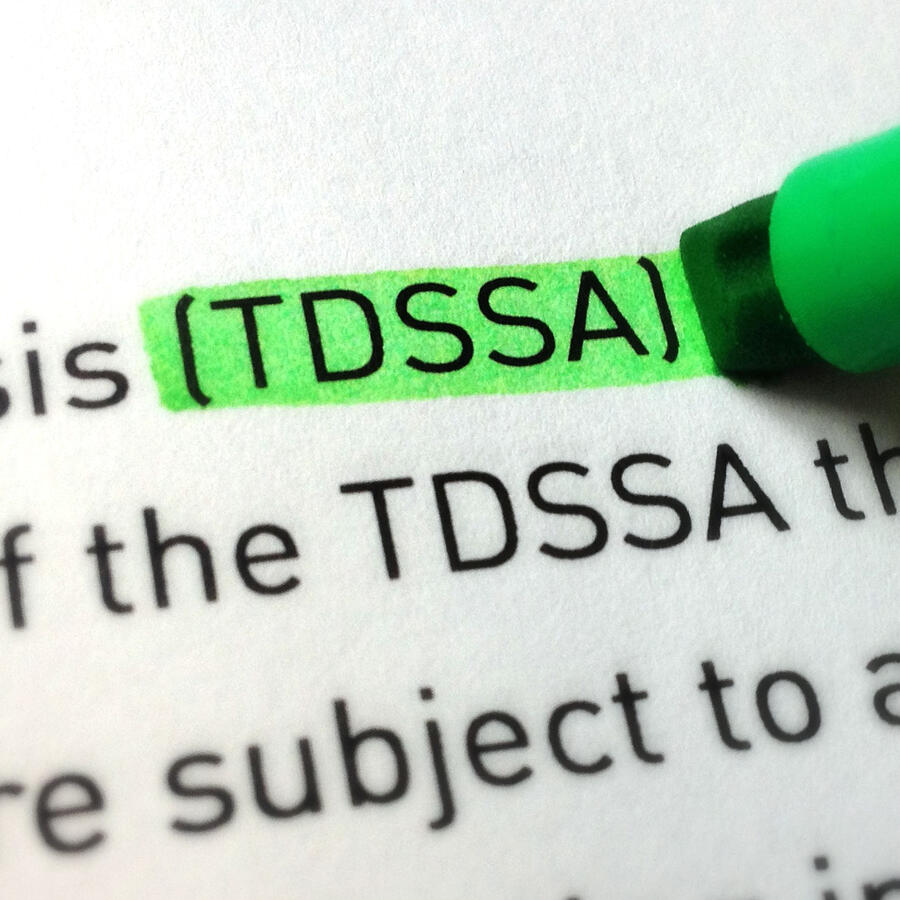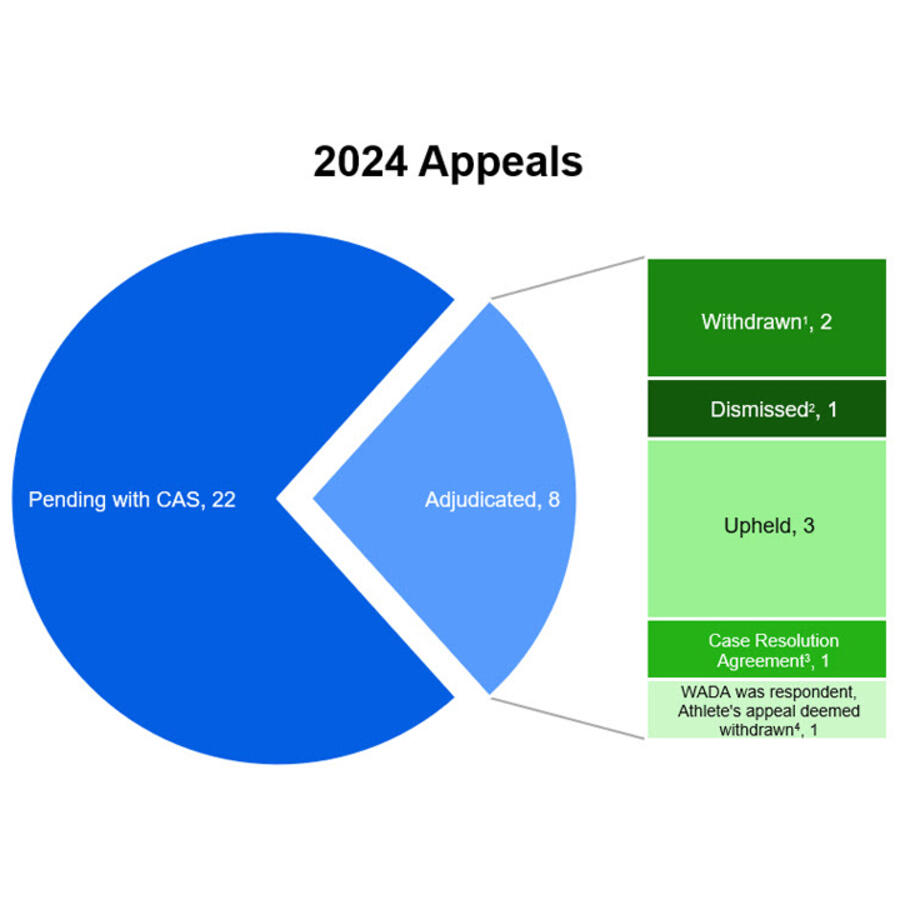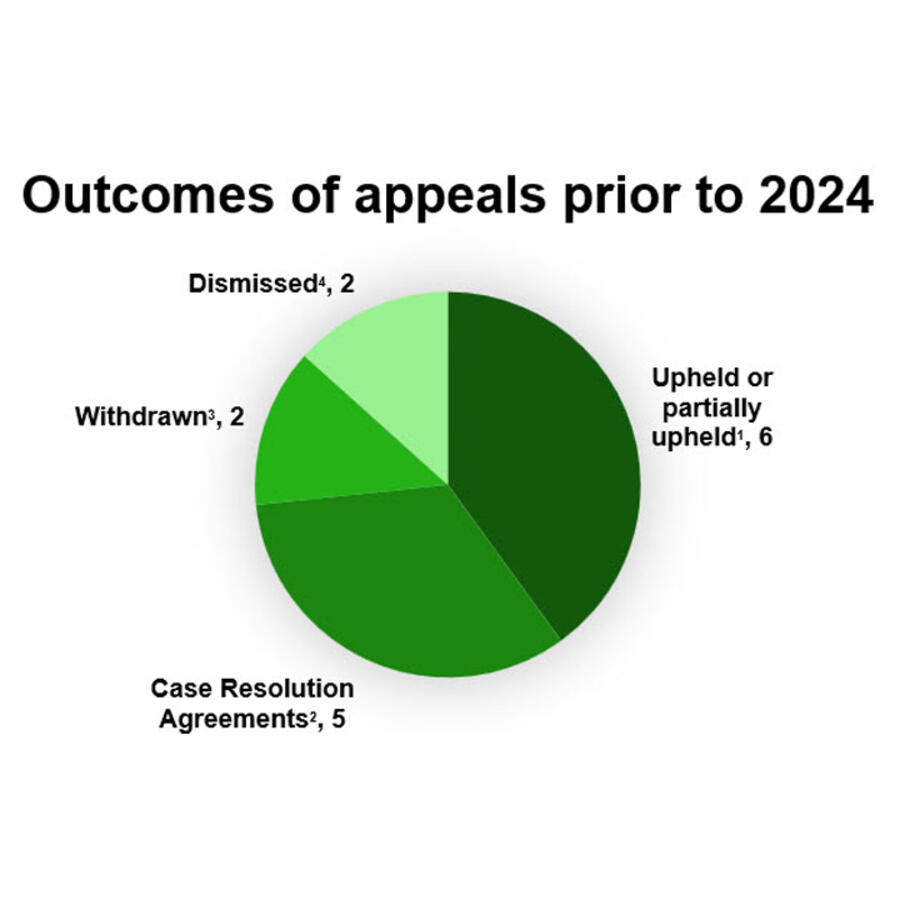Message from the President and Director General
Dear Colleagues,
We are pleased to share WADA’s 2024 Annual Report, which is an opportunity to thank you all—our partners in clean sport—for your ongoing support and dedication; and, to provide an executive overview demonstrating the impact we delivered together in 2024 in line with the priorities of WADA’s 2020-2024 Strategic Plan.
1. To further strengthen our ability to lead, we:
- continued to invest heavily in anti-doping research, allocating roughly 10% of our budget to scientific and social science research;
- strengthened our collaboration with the International Federation of Pharmaceutical Manufacturers and Association, especially as it pertains to developing detection methods and strengthening the Therapeutic Use Exemption program; and
- created the following new Impact Areas, which will help us deliver on our 2025-2029 Strategic Plan:
- Digital Insights: To better leverage data and strategically develop our digital assets, which will help us deliver insights to improve the effectiveness of the global anti-doping system; and
- Engagement & Development: To consolidate our engagement and development strategies through greater coordination and the use of insights to identify priority activities and regions.
2. To grow impact, we:
- continued to bolster the intelligence and investigations (I&I) capacity of the global anti-doping system through the success of the European Union (EU)-funded Capability and Capacity Building project. Overall, the project led to more than 100 joint-led operations, involving collaboration with 51 ADOs and law enforcement agencies across 48 countries and effectively preventing more than 500 million PED doses from entering the global market;
- published data from Phase I of the Anti-Doping Organization (ADO) Benchmarking Project, which helps ADOs measure their activity in context;
- hosted our inaugural Social Science Research Symposium, followed by our 2024 Global Education Conference in Cannes, France, which we delivered in partnership with France’s ADO, l’Agence française de lutte contre le dopage (AFLD).
3. To support our commitment to be athlete centered, our Athlete Engagement team worked closely with WADA’s Athlete Council on several initiatives, including:
- the Athletes’ Anti-Doping Ombuds that, in September, was approved to continue as an ongoing program;
- continued development of the Human Rights Impact Assessment; and
- promoting clean sport directly with the athletes, via athlete-led teams, on the ground of five major events on four continents, including the 2024 Olympic and Paralympic Games in Paris, France.
4. To deliver on our priority to collaborate and unite, we:
- organized many bilateral meetings and regional forums between WADA Leadership and leaders from Governments and the Sport Movement;
- convened more than 1,100 participants from the global anti-doping community for our 2024 Annual Symposium, which included a 25th Anniversary gala—an opportunity to celebrate the accomplishments of the global anti-doping community and some of its key contributors; and
- progressed the 2027 World Anti-Doping Code (Code) and International Standards Update Process, which will culminate with approval during the sixth World Conference on Doping in Sport that is to be held in Busan, Republic of Korea, in December 2025.
While we are proud of all that we accomplished together in 2024, as many of you would know, the year was also significantly disrupted by the China Anti-Doping Agency no-fault contamination cases involving 23 swimmers from China that emerged in April and that WADA responded to quickly and thoroughly as follows.
- By July, a review had been carried out by an Independent Prosecutor, Mr. Eric Cottier, which determined that WADA showed no bias towards China and that the Agency’s decision not to appeal the cases to the Court of Arbitration for Sport was reasonable based on the evidence.
- In September, Mr. Cottier delivered his final reasoned Report to the ExCo, which included a number of findings as to how anti-doping rules and WADA’s administrative processes could be further strengthened. As a consequence, the ExCo established a Working Group tasked with turning the findings of Mr. Cottier and those of the Anti-Doping Audit Review Committee of World Aquatics on the same topic, into concrete recommendations.
- In December, the ExCo unanimously approved a range of recommendations, which can be read in full here that covered five key areas with established timelines.
As this Annual Report is being published in August, we thought it fitting to provide a concise update on this matter from WADA’s March 2025 ExCo meeting at which point, each of the recommendations had already been implemented or was on track per timelines. We would particularly like to point out that, during the same meeting, the ExCo approved the creation of a new Working Group on Contaminations that is responsible for conducting a global review on sources of contamination leading to adverse analytical findings and anti-doping rule violations. As was highlighted by the Chinese cases and several other cases over the years, the issue of contamination is real and growing; and it is crucial that WADA and its clean sport partners address it head on.
“We look forward to discussing this and other important matters when members of the global anti-doping community convene in Busan for the World Conference."
There we will engage in high-level discussion and debate about the World Anti-Doping Program; reflect on how far we have come and the challenges and opportunities ahead with the goal of delivering on One Mission as One Team.
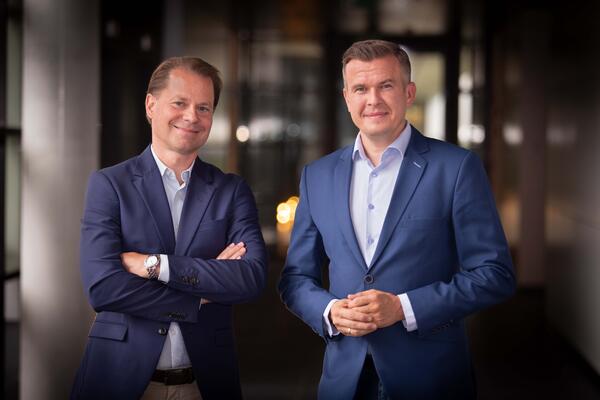
We thank you all for your commitment to clean sport.

Witold Bańka Olivier Niggli
President Director General
Other Governance Bodies
In addition to the two decision-making bodies mentioned above, WADA’s Governance Structure also includes four other types of bodies: Permanent Special Committees, Standing Committees, Expert Advisory Groups, and Working Groups.
More information on each of these governance bodies is available on our website.
With the understanding that regional and gender diversity of our governance bodies is particularly important to our stakeholders, we are sharing it below to provide stakeholders with a greater sense of the overall composition of our governance bodies. This aligns with the recommendation in 2022 from the Working Group on the Review of WADA Governance Reforms that an analysis should be conducted regularly to ensure that an accurate picture of diversity across all WADA bodies is always available. The following data is aggregated from the above-mentioned Committees and Groups as well as the ExCo and Board.
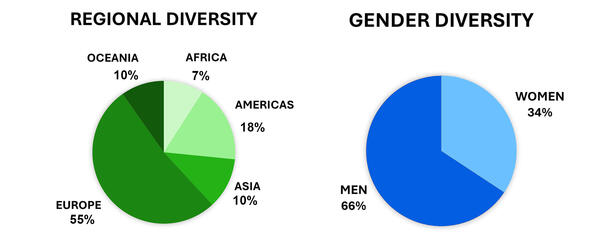
Management Team
WADA’s ExCo delegates the management of the Agency to the Director General, Olivier Niggli, who leads the Management Team. The Organizational Structure is available here.
Staff
Finally, we cannot fail to acknowledge WADA Staff in its entirety.
At the end of 2024, WADA employed 186 people of 56 nationalities to carry out its day-to-day operations from its headquarters in Montreal, four regional offices in Cape Town, Lausanne, Montevideo, and Tokyo, as well as at the Office of the President in Warsaw. Together the team collaborates with our partners across the globe to protect clean sport and uphold the values of fair play.
We are committed to cultivating a culture of diversity, equity, and inclusion in our workplace and are pleased to share our gender and regional diversity data for our overall Staff.
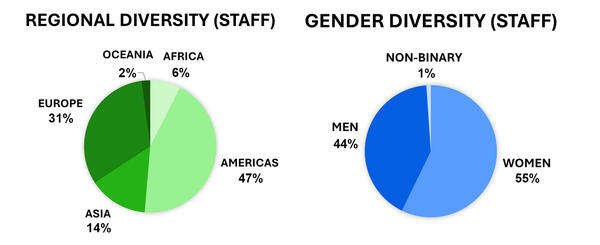
The Year in Numbers
WADA continued to conduct internal analyses and perception surveys to measure Key Performance Indicators (KPIs) under the 2020-2024 Strategic Plan. The following insights provide a snapshot of the progress the Agency made against its KPIs in 2024.
Click on the strategic priorities below to see the data and insights.
2027 World Anti-Doping Code + International Standards Update Process: Stakeholder Consultation
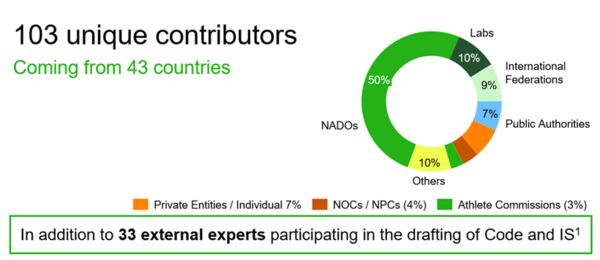
Research

Perception of ADAMS
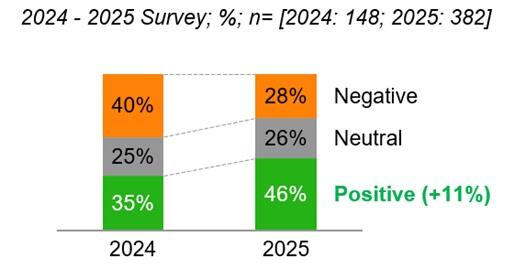
Note: The perception surveys are administered at the beginning of each year, meaning the data from 2025, particularly when compared to that of 2024, provides insight on progress made over the course of 2024.
Professionalizing ADO Practitioners (GLDF)

Capacity Building

WADA provided staffing grants to 11 RADOs and the Testing Grant supported 529 out-of-competition tests, across 41 sports and 70 countries.
Ombuds Program
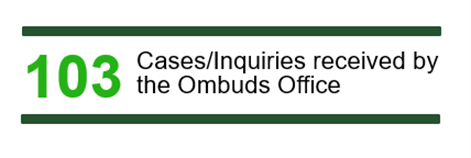
Athlete and athlete support personnel education impact
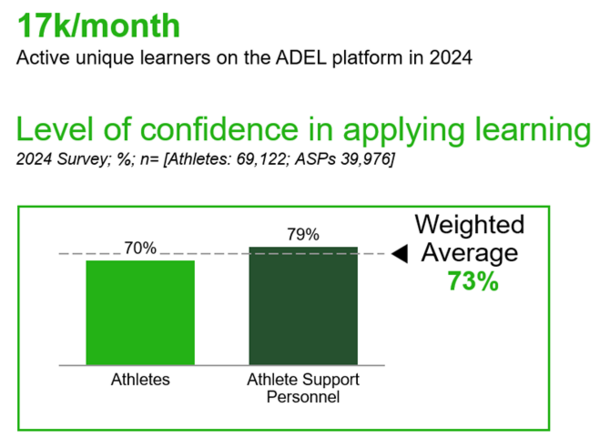
Collaboration among WADA governance members
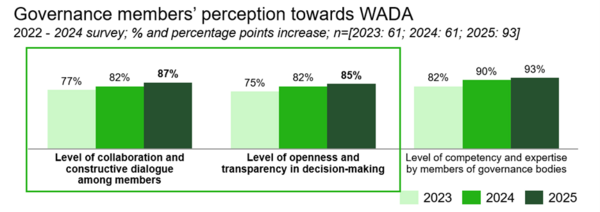
Collaboration with law enforcement
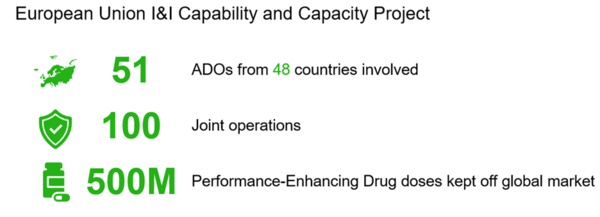
Lead
To further strengthen our ability to lead the collaborative worldwide movement for doping-free sport, we invest in science and medicine; embrace innovation and digital technologies; develop partnerships with leaders in the field; and facilitate the development of evidence-based prevention strategies.
Cutting edge Science and Medicine
WADA continues to strengthen the development of anti-doping science and medicine to ensure effective implementation of the World Anti-Doping Code (Code) and its related International Standards.
Innovative scientific research helps address emerging challenges and identify new trends in doping, including new drugs, new delivery mechanisms, new methods and new ways of improving doping detection. Since 2001, WADA has invested over USD 93 million in more than 700 research projects, helping researchers around the world make breakthroughs in anti-doping science.
In 2024 alone, 36 publications stemmed from WADA-funded scientific research.
2024 Scientific Research Grant Program:
WADA’s Executive Committee (ExCo) approved funding recommendations from the Health, Medical and Research (HMR) Committee in September and December for research proposals for WADA’s 2024 call for scientific research grants. A total of 27 projects from 14 countries across four continents were selected for funding, amounting to USD 2.37 million.
WADA’s Senior Director of Science and Medicine, Prof. Olivier Rabin, said: “WADA’s Scientific Research Grant Program is an integral part of the Agency’s commitment to stimulating and funding innovative scientific research to strengthen the global anti-doping system. Reflecting on the first year of our Expression Of Interest (EOI)-based granting system which we launched in December 2023, we are pleased with the increased attractiveness of the program and higher number of submissions received, in particular from researchers outside of the traditional anti-doping circles. The new system allows researchers to submit EOIs at any time during the year. These EOIs are then reviewed in cycles throughout the year prior to selected projects being invited to submit full applications.”
|
|
EOIs received |
Full applications submitted |
Projects awarded funding |
Total funding allocated |
|
Cycle 1 |
70 |
32 |
14 (see list) |
1,419,835 |
|
Cycle 2 |
52 |
33 |
13 (see list) |
952,001 |
The total scientific research budget allocated in 2024 was USD 4.5 million—the remaining funds were used to support identified targeted projects in areas such as erythropoietin (EPO), growth hormone, gene doping, research impact, contaminants, dried blood spot, artificial intelligence and reference materials.
2024 was a year of implementation and training for the Athlete Biological Passport (ABP) following the 2023 launch of the Endocrine Module and blood steroid markers in the Steroidal Module, and their collective launch within a new ABP interface in ADAMS NextGen.
In March, WADA held its first ever Athlete Passport Management Unit (APMU) Workshop, gathering 46 staff from all 16 WADA-approved APMUs. The Workshop, which was held at the Institute of Biochemistry of the German Sport University Cologne, included sessions aimed at harmonizing various steps of passport management, discussion of cases, and brainstorming solutions to specific issues related to ABP program management. A particular emphasis was given to sharing experiences and successes with the new features of the ABP launched in 2023, including the Endocrine Module and the new blood steroid markers.
In June, WADA held two ABP webinars to provide further updates and practical information on the new modules. The recordings can be accessed by searching for the following content on WADA’s Anti-Doping Education and Learning (ADEL) platform (sign-in required):
- ABP Administration for ADOs
- Practical considerations for maximizing the use of new ABP features
In August, Drs. Reid Aikin and Norbert Baume, WADA’s Associate Director and Senior Manager of the ABP, were featured on the Anti-Doping Podcast, presented by the Partnership for Clean Competition to discuss the latest updates and ongoing research for the ABP.
In December, WADA was pleased to share insights supporting a deterrent effect of testing from a study it published examining the impact of anti-doping testing on rates of Adverse Analytical Findings. As part of its strategy to leverage data to enable more informed decision making across different areas of activity, this work helps demonstrate the impact of testing on reducing the rates of AAFs for Erythropoietin Receptor Agonists (ERAs) and the value of the ABP in helping detect the use of ERAs.
The Therapeutic Use Exemption (TUE) process is a means by which an athlete may obtain approval to use a prohibited substance or method for the treatment of a legitimate medical condition. The TUE process is a necessary part of elite sport and has overwhelming acceptance from athletes, physicians, and anti-doping stakeholders worldwide.
In 2024, a total of 3,975 new approved TUEs were registered in ADAMS, a 6% increase over 2023. One contributing factor to the observed increase may have been the expanded competition calendar associated with the occurrence of the Paris 2024 Summer Olympic and Paralympic Games.
Consistent with trends from previous years, National Anti-Doping Organizations (NADOs) accounted for the majority of approved TUEs recorded in ADAMS in 2024 (77%). International Federations (IFs) recorded 21%, Major Event Organizations (MEOs) 1% and “Others” (e.g., continental sports confederations) 0.5%. Collectively, IFs and MEOs recognized approximately 15% of TUEs approved in 2024.
A breakdown of TUEs granted by Prohibited List classification demonstrates a pattern consistent with 2023. TUEs for substances included in the S6 class (stimulants) 32%, S9 class (glucocorticoids) 27%, and S4 class (hormone and metabolic modulators) 17%, represented the three most common categories.
WADA screens all TUEs based on risk prioritization. In 2024, the Agency conducted 15 WADA TUE Committee reviews, which resulted in 13 TUE decisions reversed and denied.
Collaboration with biopharmaceutical trade body to go further in protecting clean sport
In April, members of WADA leadership met with the Chief Executive Officers of biopharmaceutical companies, and members of the International Federation of Pharmaceutical Manufacturers and Association (IFPMA) to discuss how the pharma industry and the anti-doping community can work even closer together in the protection of clean sport. WADA and IFPMA reinforced their intent to further strengthen their collaboration to deliver clean sport for athletes in a number of key areas, including:
- The early exchange of information on substances that have doping potential;
- The ongoing strengthening of the TUE program to make sure it remains effective and robust;
- By identifying and reducing the distribution of falsified medicinal products; and
- By co-hosting the International Conference on the Pharmaceutical Industry and the Fight Against Doping, as was done in Paris (2012) and again in Tokyo (2015).
Grow Impact
WADA strives to expand the reach and impact of anti-doping programs by enhancing capacity building, capability development, and knowledge sharing between Anti-Doping Organizations (ADOs) as well as enabling local program delivery. Several teams across the Agency contribute to this work, including Education, Program Development, Intelligence and Investigations, National Anti-Doping Organization/Regional Anti-Doping Organization (NADO/RADO) Relations, and the Regional Offices.
Be Athlete Centered
Athletes have always played a central role at WADA and their influence on anti-doping policy and governance has grown significantly since the Athlete Engagement Impact Area has been solidified into WADA’s organizational model. In 2024 we continued to hone the ways by which we collaborate and consult with athletes to ensure that their feedback is transformed into actionable opportunities to improve their anti-doping experience.
WADA’s ‘Be Athlete Centered’ priority of the Agency’s Strategic Plan involves:
o engaging and empowering athletes to contribute to the development of anti-doping policies;
o building an easier anti-doping journey for athletes; and
o gaining the trust and support of athletes in the anti-doping system.
To deliver on WADA’s priority to “Be Athlete Centered,” we worked in close collaboration with the Athlete Council to carry out several athlete-centered initiatives, including engaging the athlete community on the 2027 Code and International Standard Update Process and progressing athlete-centered projects such as the Athletes’ Anti-Doping Ombuds Program and the Initial Human Rights Impact Assessment. 2024 also saw the development of more tailored e-learning content for athletes and meaningful athlete engagement at several major events.
Governance Matters
In December, WADA announced the eight athletes who were elected to WADA’s Athlete Council Group 2*. We launched the Preliminary Phase of the election in September by inviting all eligible International Federation (IF) Athlete Commissions (ACs) that are Signatories to the Code to present candidates. In November, the Agency announced the 26 candidates who were running for election. The election was available only to IF ACs that were registered and deemed eligible to vote—55 out of these 60 IF ACs voted (91.7% participation rate).
*Learn more about the composition of the Athlete Council
The eight athlete members elected in December are listed below in alphabetical order by last name:
Athlete Education
Athlete education is an integral part of the athlete anti-doping journey. The International Standard for Education recognizes that athletes should have their first experience with anti-doping through education rather than doping control and that the topics and content of education should be adapted and tailored to meet the needs of the target audience.
In line with these principles, in 2024, WADA launched the following athlete-centered content on the Agency’s Anti-Doping Education and Learning platform (ADEL):
| 1. ADEL for Paris 2024 Paralympic Games (ADEL for Paris 2024 Olympic Games launched in October 2023) |
|
2. E-learning course and downloadable resources targeting youth athletes:
|
| 3. Cannabinoids factsheet for athletes and athlete support personnel |
| 4. Athlete and Athlete Support Personnel Guide to the 2025 Prohibited List |
Athlete Engagement at events
WADA’s Athlete Engagement at events is geared towards raising awareness about clean sport while engaging athletes and their support personnel to get involved and be part of the solution. In 2024, WADA’s Athlete Engagement program continued to have a global reach. Its athlete-led teams ran booths with interactive activities at five events held in four different regions of the world, engaging with thousands of athletes.
-

2024 Winter Youth Olympic Games
19 January-1 February | Gangwon, Republic of Korea -

2023* African Games
8-23 March | Accra, Ghana -

2024 CARIFTA Games
30 March-1 April | St. George’s, Grenada -

2024 Olympic Games
26 July-11 August | Paris, France -

2024 Paralympic Games
28 August-8 September | Paris, France
Collaborate and Unite
WADA seeks to engage all stakeholders to protect clean sport by working with Code Signatories, Public Authorities, experts, and other stakeholders for a unified and coherent global anti-doping system. WADA’s Stakeholder Liaison Departments, which include Government Relations, Sport Movement Relations, and the Regional Offices, are instrumental to this work.
At a governance level, collaboration is key. WADA’s many Committees, Expert Advisory Groups and Working Groups contribute significantly to the development of the global anti-doping system. WADA is grateful to the members of each of these groups, all of whom graciously volunteer their time and expertise for the collaborative worldwide movement for doping-free sport.
Stakeholder Engagement
Members of WADA leadership, including President Witold Bańka, Vice-President Yang Yang, and Director General Olivier Niggli, frequently meet with government officials, sport leaders and Anti-Doping Organizations (ADOs) across the globe, both in bilateral meetings and multilateral forums. These meetings are key opportunities for exchange—for WADA to hear from its stakeholders about the anti-doping landscape in their region, the work they are conducting, and the challenges they are facing, as well as for WADA to update stakeholders on its priorities and activities. Above all, these are opportunities to promote the need for continued collaboration and harmonization of anti-doping rules, policies, and regulations between governments, sport leaders and ADOs worldwide and for stakeholders to strengthen their commitment to protecting clean sport.
World Anti-Doping Program
The World Anti-Doping Program—comprised of the World Anti-Doping Code (Code), International Standards (Standards), and Guidelines—is the backbone of our work and enables us to harmonize anti-doping rules and policies across all sports and countries. These are all living documents and thus are updated as needed, always in consultation with stakeholders. In turn, as the global regulatory body for anti-doping in sport, WADA is responsible for monitoring effective implementation of and compliance with the Code and Standards by Code Signatories and also for ensuring global harmonization of sanctions and equal treatment for athletes.
2027 World Anti-Doping Code and International Standards Update
The 2027 World Anti-Doping Code and International Standards Update Process (2027 Code & IS Update Process), which was first launched in September 2023, progressed according to schedule over the course of 2024:
- In January, WADA launched the First Drafting Phase, during which the drafting teams worked on reviewing and integrating stakeholder feedback regarding the Concept Papers.
- In May, WADA launched the Stakeholder Consultation Phase, during which stakeholders were invited to provide feedback on the first drafts of the Code and International Standards.
- Finally, in October, WADA launched the Second Drafting Phase, during which the drafting teams worked on reviewing and integrating stakeholder feedback regarding the first drafts.
The 2027 Code & IS Update Process is part of WADA’s commitment to facilitate periodic collaborative review processes to ensure the documents remain fit for purpose. In the interest of transparency, all comments received during the stakeholder consultation phases have been published on WADA’s website along with the clean and redline drafts and summaries of major changes.
The two-year, multi-phase process, is summarized in the 2027 Code & International Standards Update Process – Timelines & Key Phases document and is also outlined below:
- Consideration of stakeholders’ feedback on the Code and Standards;
- Circulation of drafts of proposed amendments to the Code and Standards;
- Final versions of the Code and Standards being presented for approval at the sixth World Conference on Doping in Sport, to be held in December 2025 in Busan, Republic of Korea; and
- Updated 2027 Code and Standards, entering into effect on 1 January 2027.
More information regarding the 2027 Code and Standards Update Process is available on our Code Review webpage.
List of Prohibited Substances and Methods
In September 2024, following our usual, extensive stakeholder consultation process with some of the most qualified experts in the fields of science and medicine from around the world, WADA’s Executive Committee (ExCo) approved the 2025 List of Prohibited Substances and Methods (List). The List was then published on 25 September, along with the 2025 Summary of Major Modifications and Explanatory Notes and the 2025 Monitoring Program. As is customary, the new List came into effect 1 January 2025.
Compliance
As the global regulatory body for anti-doping in sports, one of WADA’s primary roles is to monitor Code Signatories’ compliance with the World Anti-Doping Code (Code) and International Standards. This monitoring is achieved through WADA’s Compliance Monitoring Program, which in 2024, included the Code Compliance Questionnaire (CCQ), compliance audits and reviews of anti-doping rules, regulations, and national legislation.
In 2024, over 200 Signatories underwent a compliance assessment and/or received support through the following compliance monitoring activities:
- 56 Tier 3 Signatories completed the CCQ and were issued with a Corrective Action Report (CAR). Additionally, 136 Tier 4 Signatories received a shorter version of the CCQ with 69 receiving a CAR by the end of 2024. The CCQ enables Signatories to report on their adherence to the 2021 Code.
- During the year, WADA conducted 11 compliance audits, all on Tier 1 Signatories, comprising 10 full audits and one partial audit on results management for a National Anti-Doping Organization (NADO). Eight audits were conducted on NADOs and three on International Federations (IFs), with ten audits conducted in person and one virtually.
- WADA reviewed 322 sets of anti-doping rules and/or national legislation from 71 Code Signatories. 15 countries adopted national anti-doping legislation that complies with the Code.
The following are some of the key findings from the 2024 compliance monitoring program:
CCQ
- Tier 3 NADOs reported an average of 27.4 non-conformities per CAR, with testing activities accounting for the largest share at 39%.
- For Tier 3 IFs, education emerged as the largest share of non-conformities (32%) with an average of 23.6 non-conformities per CAR.
Compliance audits
- The average number of non-conformities per audit decreased from 27 in 2023 to 25.2 in 2024. While critical non-conformities remained unchanged, high priority non-conformities saw a 33% reduction.
- Results management represented the largest portion of audit-related non-conformities at 35%, with 58% of these being classified as critical.
Anti-doping rules, regulations and legislation review
- The total number of rules and legislation reviews dropped 2% from 330 in 2023 to 322 in 2024.
- The number of new or amended national legislation submissions saw 26 countries submitting legislation for review in 2024, up from 25 in 2023.
- Seven countries required amendments to existing legislation to ensure compliance with the Code.
- In 2024, 26 compliance procedures were initiated against 24 Signatories, a significant decrease from the 108 compliance procedures initiated against 88 Signatories in 2023. This reduction is attributed primarily to the nearing completion of the CCQ exercise. Notably, 81% of these procedures were resolved without escalation to the Compliance Review Committee (CRC).
- The Executive Committee endorsed 20 recommendations from the CRC, up from 16 when compared to 2023.
- 16 Signatories were placed on the “watchlist,” up from 11 in 2023. All watchlist cases were related to either the implementation of testing programs or rules and/or legislation.
- Four Signatories were declared non-compliant in 2024: the NADOs of Cameroon, Angola, Tunisia and the IF Pelota Basque. At the end of 2024, four Signatories remained non-compliant: the NADOs of Cameroon, Russia, the International Federation for Fitness and Bodybuilding and the IF Pelota Basque.
In 2024, a revised version of the ISCCS was implemented. This was the first significant review of the ISCCS since its implementation in 2018, incorporating lessons learned from the Russian doping incident and other operational insights. The ISCCS is subject to further stakeholder consultation ahead of 2027. WADA also updated its Compliance Strategy to reflect the latest changes to WADA’s programs and objectives.
Summary
The year 2024 was busy for the Agency as it continued to monitor compliance among its Code Signatories. Although the number of compliance procedures decreased compared to 2023, there was an increase in cases reviewed by the CRC and in the number of recommendations subsequently endorsed by the Executive Committee. This increase was primarily due to two factors: the outcomes of the Tier 3 CCQ assessments and challenges in implementing effective testing programs, along with instances of non-compliant national anti-doping legislation.
Russian Anti-Doping Agency (RUSADA)
The two-year period of consequences contained in the CAS decision regarding RUSADA’s non-compliance came to an end on 17 December 2022. Consistent with feedback from the independent Compliance Review Committee and the Executive Committee, WADA intends (when circumstances permit) to conduct an in-person audit of RUSADA in order to assess inter alia whether the conditions of reinstatement as laid out by the CAS decision are met. In the meantime, RUSADA remains non-compliant with the Code.
Separately, a distinct critical non-conformity was identified related to inconsistencies between the federal Russian sports legislation and the Code during an audit. At its meeting on 22 September 2023, the ExCo accepted the CRC’s recommendation to impose on RUSADA new consequences and reinstatement conditions. As announced on 17 November 2023, RUSADA did not accept this decision, and the matter is now pending before CAS. WADA is working with RUSADA and the Russian authorities towards the adoption of a revised federal sports law that is compliant with the Code.
Meanwhile, WADA’s Operation LIMS investigation into the data and samples retrieved by WADA Intelligence and Investigations from the Moscow Anti-Doping Laboratory in 2019 continues to deliver results:
- 280* cases have successfully resulted in convictions, with more expected as all cases are followed up.
- Disciplinary proceedings have been initiated in a further 29* cases.
- 13* are still under investigation by the applicable ADO (in many of these cases, ADOs are consulting lab experts to determine whether sufficient evidence is available to move forward).
*These numbers are correct as of 13 August 2025.
2024 Financial Overview
In 2024, WADA successfully delivered on its priorities, remaining resilient in the face of financial constraints as outlined below. This success was made possible through collaboration with and financial support from our stakeholders and we are grateful for their continued commitment to WADA’s mission for doping-free sport.
WADA ended 2024 with a total income of USD 45.4 million. The total contributions from Public Authorities (PAs) and the International Olympic Committee (IOC) reached USD 39.8 million, falling short by USD 10.2 million against the combined budgets of USD 50 million. PAs contributed 78% of their budgeted funding.
The shortfall primarily stemmed from the United States of America (USA) withholding its 2024 contribution of USD 3.6 million. As it relates to the Russian Federation, the Agency received a partial payment of USD 53,200 for their 2023 contribution; however, there remains a significant pending contribution from Russia of USD 1.2 million for 2023 and USD 1.3 million for 2024, which continues to be delayed due to strict international banking sanctions against the Federation. WADA continues to monitor the situation closely.
In 2024, WADA received USD 689,000 from PAs for contributions related to previous years.
Montreal International, the organization that hosts WADA’s headquarters in Montreal, remitted USD 2.53 million against a budget of USD 2.44 million. Due to timing, residual payment from the previous year was resolved in early 2024. The hosting agreement was renewed in 2019 for a further 10-year term from 2022 to 2031.
WADA received USD 1.88 million through its Information Technology (IT) partnership with Sword Group (a world-leader in IT and digital transformation), marking the first full year of the five-year agreement.
Additional contributions amounting to USD 194,000 were received from the Governments of Australia and Japan, as well as from the City of Lausanne and Canton de Vaud (in Switzerland).
Following the successful financial audit of the European Union Intelligence & Investigation Capability and Capacity Building project, WADA received a final amount of USD 471,000 upon the project’s completion in June 2024. This final contribution brought the total funding for the project received over the two-year period to more than USD 1.5 million.
WADA also received funding of USD 70,800 from the European Observatoire of Sport and Employment for the Global Learning and Development Framework for Clean Sport (GLDF4CLEANSPORT) Erasmus+ project, which was led by the Education department. WADA, in collaboration with its trusted partners, has successfully navigated the shortfall in 2024 contributions from PAs, along with its impact on the Sport Movement matching contributions. While efforts to fully compensate for the income gap remain ongoing, our financially responsible approach to adjusting expenditures, as detailed in the next section, has helped mitigate the operating deficit.
Closing the year at USD 49.3 million in operating expenses against USD 45.4 million in actual income, WADA registered a net deficit of USD 3.1 million. Overall, the operating expenses accounted for 91% of the projected 2024 budget.
The operating results reflect a gap between the operating expenses and net deficit, primarily due to the significant annual depreciation costs associated with ADAMS. In September 2023, we signed a partnership deal with Sword, committing to an investment of USD 4.3 million per year over the next five years in ADAMS development. This represents a 95% increase over previous years in capital expenditure investments, leading to a corresponding rise in depreciation expenses for 2024 and over the coming years. This strategic investment supports long-term commitment to and innovation of ADAMS but will continue to impact financial results until the benefits materialize.
As the year progressed and uncertainty around US funding increased, WADA initiated several cost reduction measures, particularly in the second half of the year. Cutting back on travel and in-person events and meetings yielded significant savings, despite 2024 being an Olympic and Paralympic year. WADA maintained key annual meetings and events, including the Agency’s Annual Symposium in Lausanne in March, which most participants attended in person. Other important meetings, such as the September Executive Committee (ExCo) meeting and the December ExCo and Foundation Board meetings, were graciously hosted by the governments of Türkiye and Saudi Arabia respectively. Overall, in 2024, travel and accommodation were recorded at USD 3.1 million, representing about a 12% (or 425,000) decrease compared to the previous year.
Scientific and Social Science Research expenditure reached USD 3.2 million in 2024, an increase of USD 1.1 million from the previous year, attributed to the timing differences in research project applications and payments. The 2024 Scientific Research Grant Program received a total of 65 full applications, of which 27 were approved, amounting to USD 2.37 million. An additional USD 1.33 million was approved for 12 targeted projects and a further USD 500,000 is provisionally set aside for targeted projects designed to synthesize priority reference materials. Accounting for related coordination meetings and reviews, the total commitment to scientific research projects amounted to USD 3.8 million against a budget of USD 4.5 million, with an anticipated additional USD 500,000. For Social Science Research, WADA approved seven projects covering research in more than 60 countries worth USD 335,000, against a budget of USD 500,000. Combined, both Scientific and Social Science research committed projects reached 83% of their budget and could reach as much as 93%.
Litigation fees increased by USD 322,000, reaching USD 2 million and exceeding the budget by 14% (or USD 274,000). The Legal Affairs department handled upwards of 35 complex cases that required specialized resources and/or experts. Notably, the high-profile Chinese swimmer cases from 2021 resulted in legal fees of USD 650,000, covering both direct and indirect costs. The litigation reserve increased from USD 2 to 2.5 million, utilizing the funds paid to WADA as a result of the award of the Court of Arbitration for Sport against the Russian Anti-Doping Agency.
IT and WADA’s Anti-Doping Administration & Management System [ADAMS] remained a key priority in 2024, and the Agency continued to invest significant resources. As part of the Sword Group agreement, operating expenses under managed services, hardware, licenses, and maintenance amounted to USD 2.1 million, while more than USD 4 million was invested under capital expenditures for development of ADAMS.
As it concerns employee costs, the amount per employee was adjusted by a portion of annual inflation to maintain the same level as previous years. Salary costs and other personnel costs were within budget.
The total Agency-wide administration costs amounted to USD 3.9 million in 2024, including primarily office operations, governance meetings, and related costs and insurance coverage. An increase of USD 567,000 from the previous year was mainly due to the significant rise in insurance costs, particularly those related to liability and cybersecurity, as well as meeting/event venue costs.
The interest income from investment (short- and long-term) reached USD 1.1 million, an increase of USD 662,000 from the previous year. WADA maintained its conservative investment policy of not investing funds in speculative financial products. Despite global economic uncertainty, the US dollar remained strong against the Canadian dollar. A favorable US dollar exchange rate contributed to financial stability given that core expenses are in Canadian dollars.
With the approval of the ExCo, WADA increased its operating reserve by USD 9.6 million, ensuring coverage of six months of operations based on the current level of activities. This reserve helps ensure the Agency’s business continuity in the face of ongoing global economic uncertainty. Most importantly, WADA continues to tightly control expenses and savings, allowing for reinvestment into programs and activities that benefit the anti-doping community.
Overall Financial Position
In summary, despite the financial constraints of 2024, WADA’s proactive cost management combined with financial agility helped mitigate the contribution shortfall from some stakeholders. As we move forward, we remain committed to sustaining financial stability and resilience by collaborating with trusted public and private partners.
